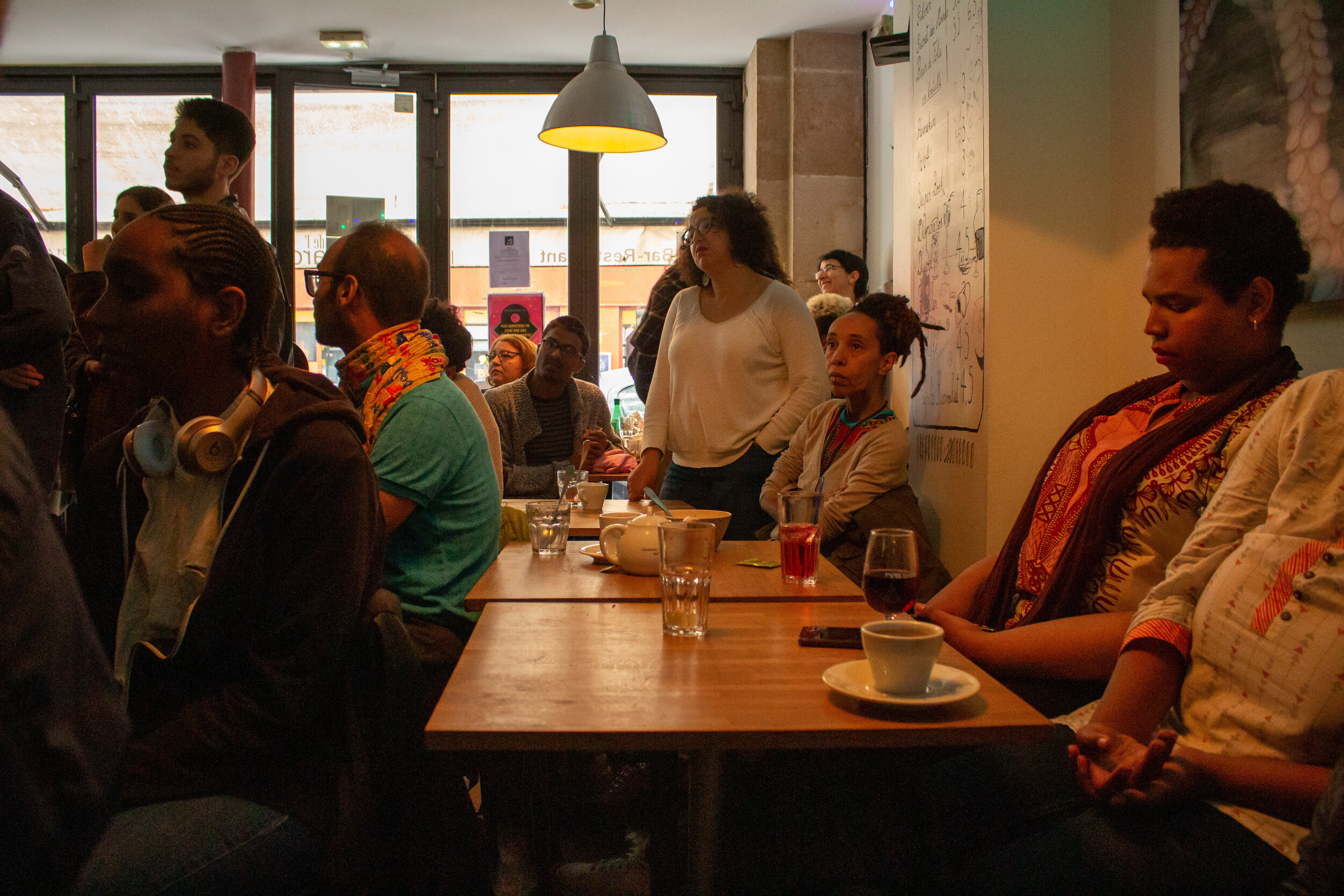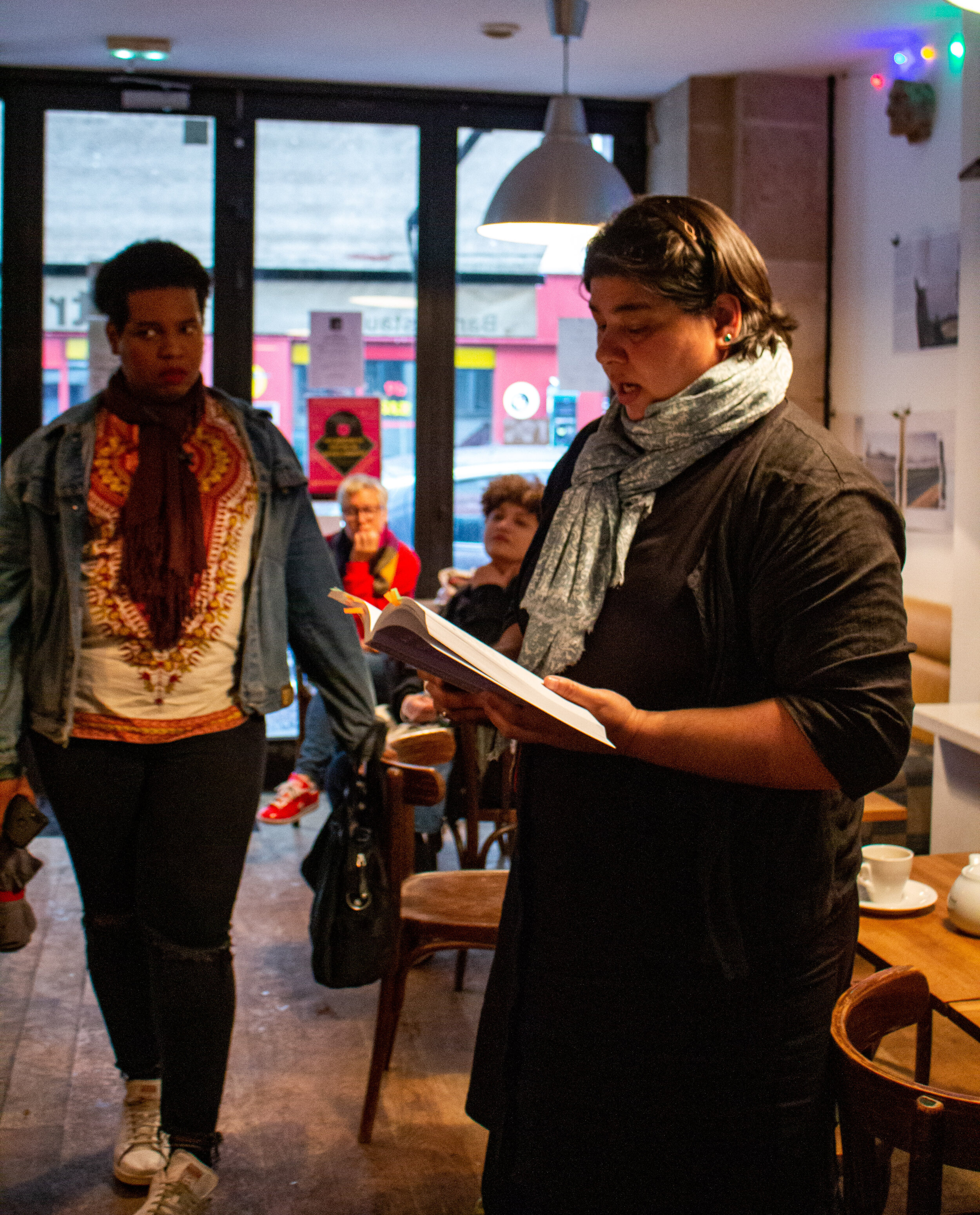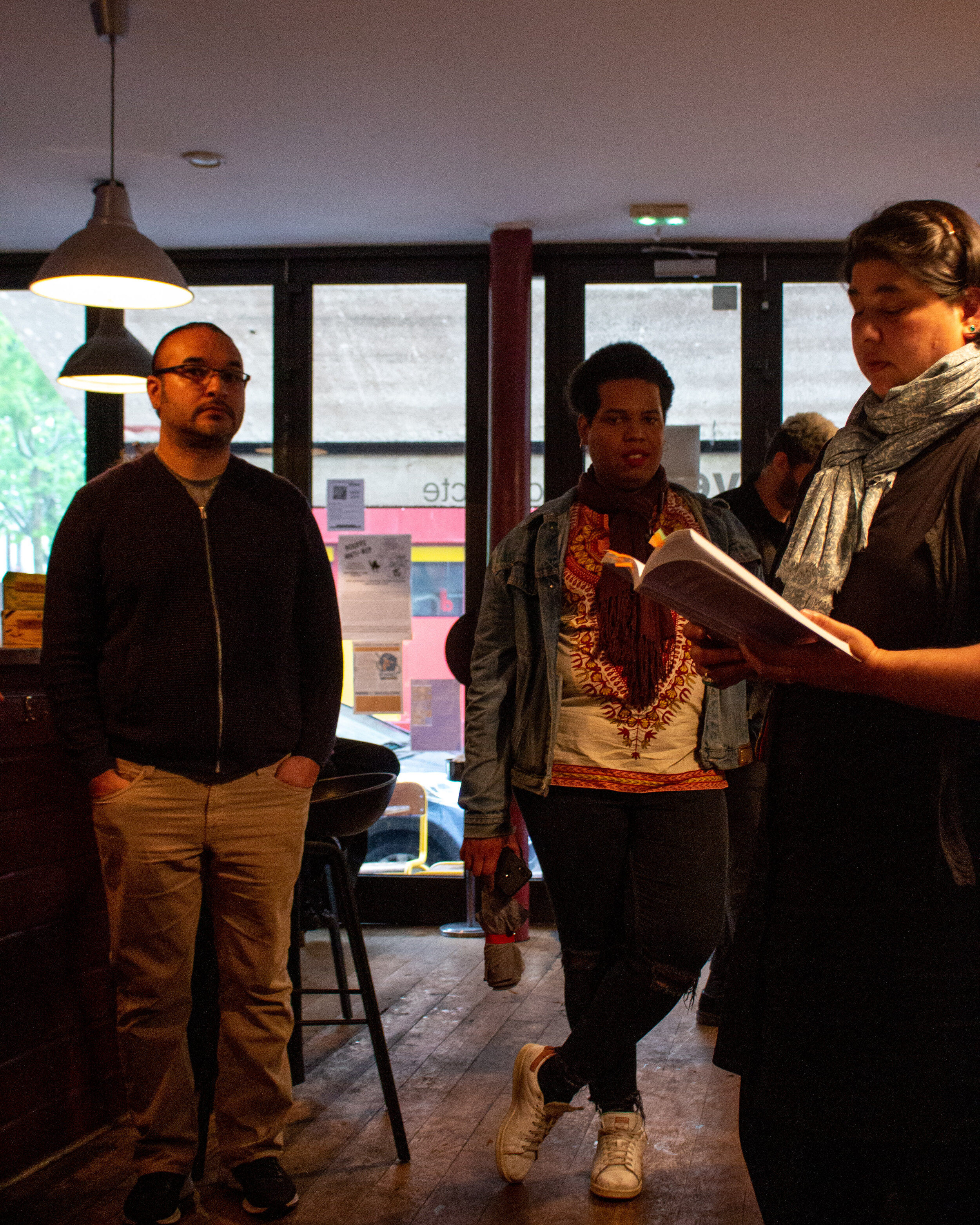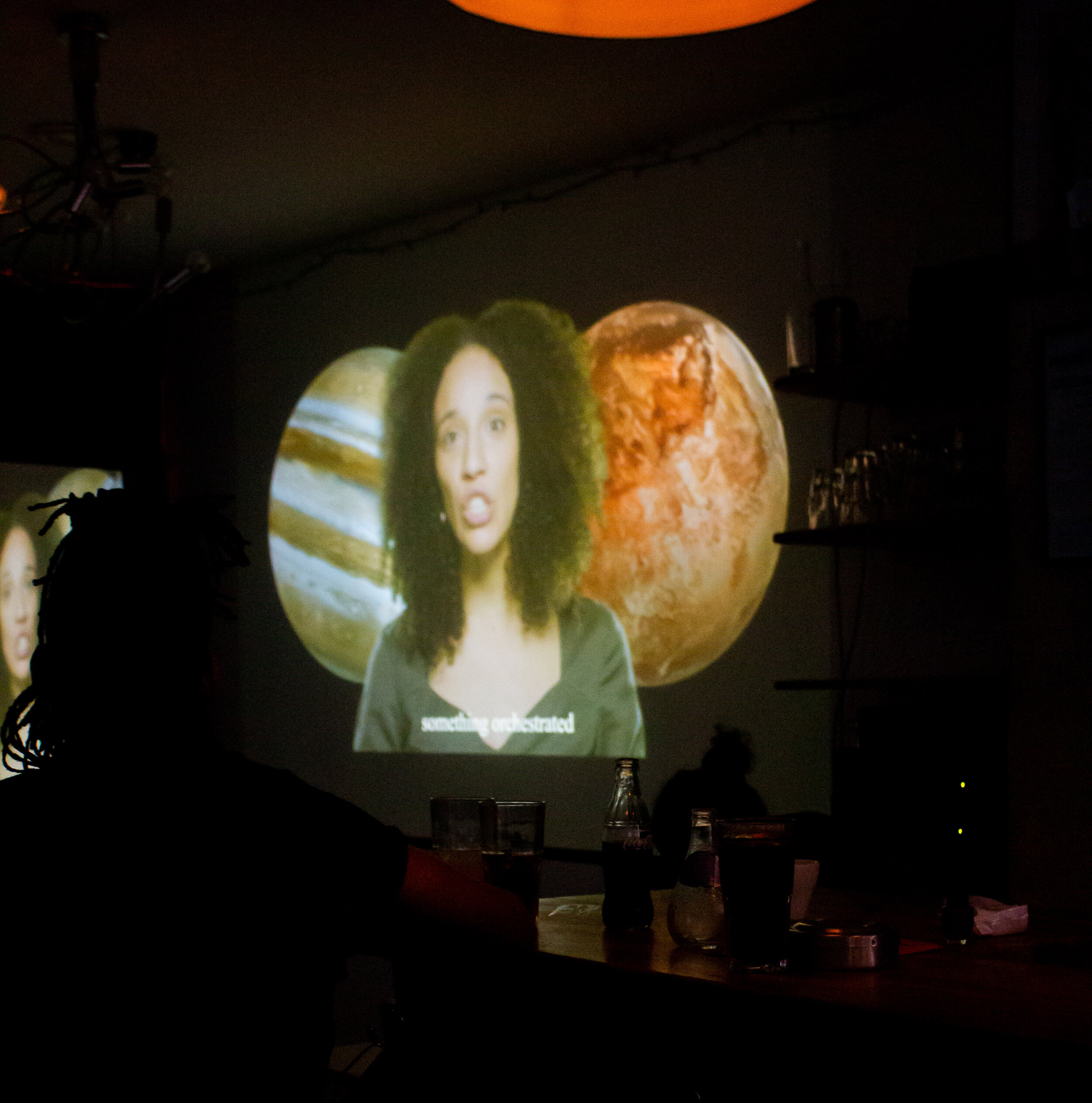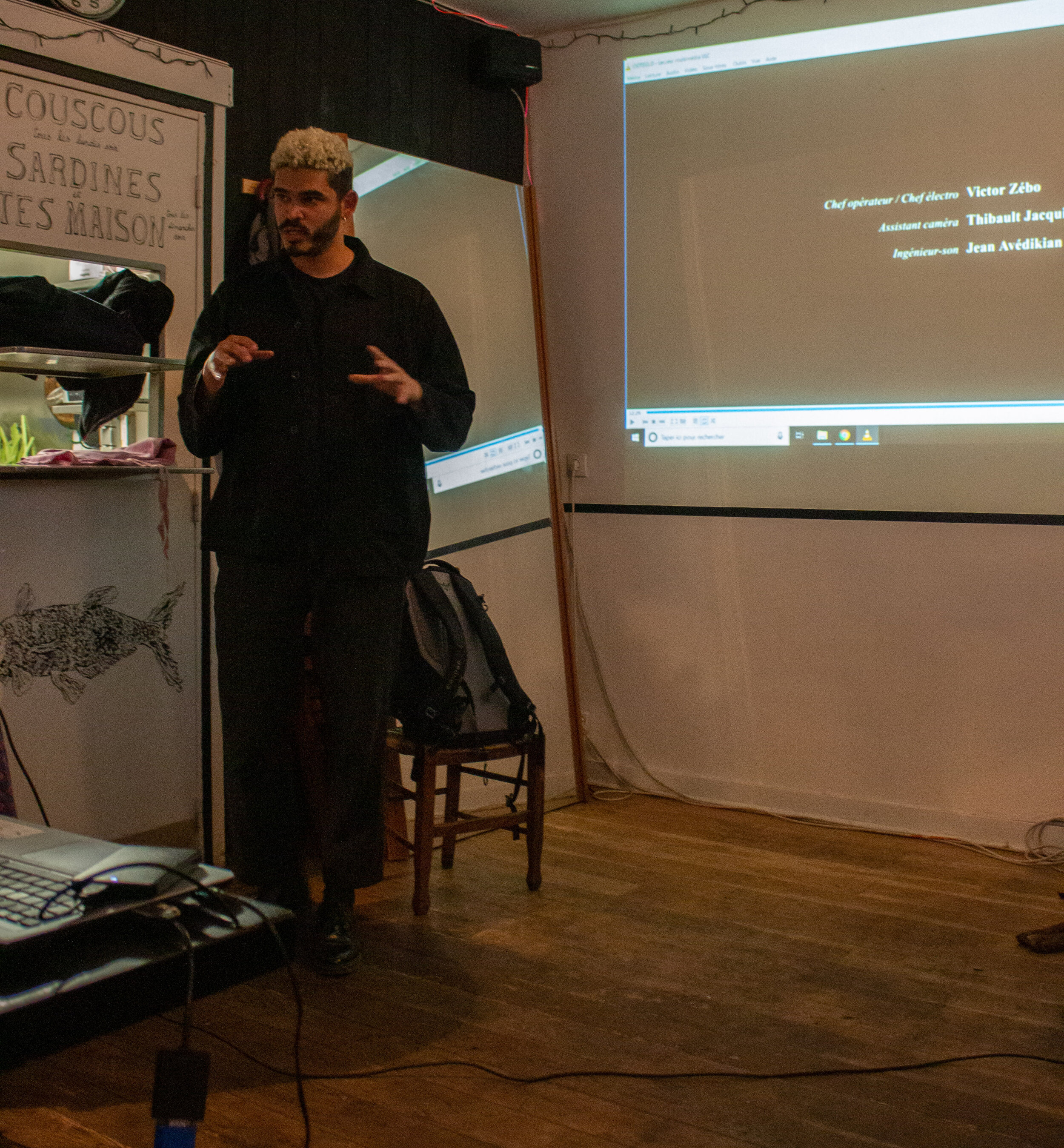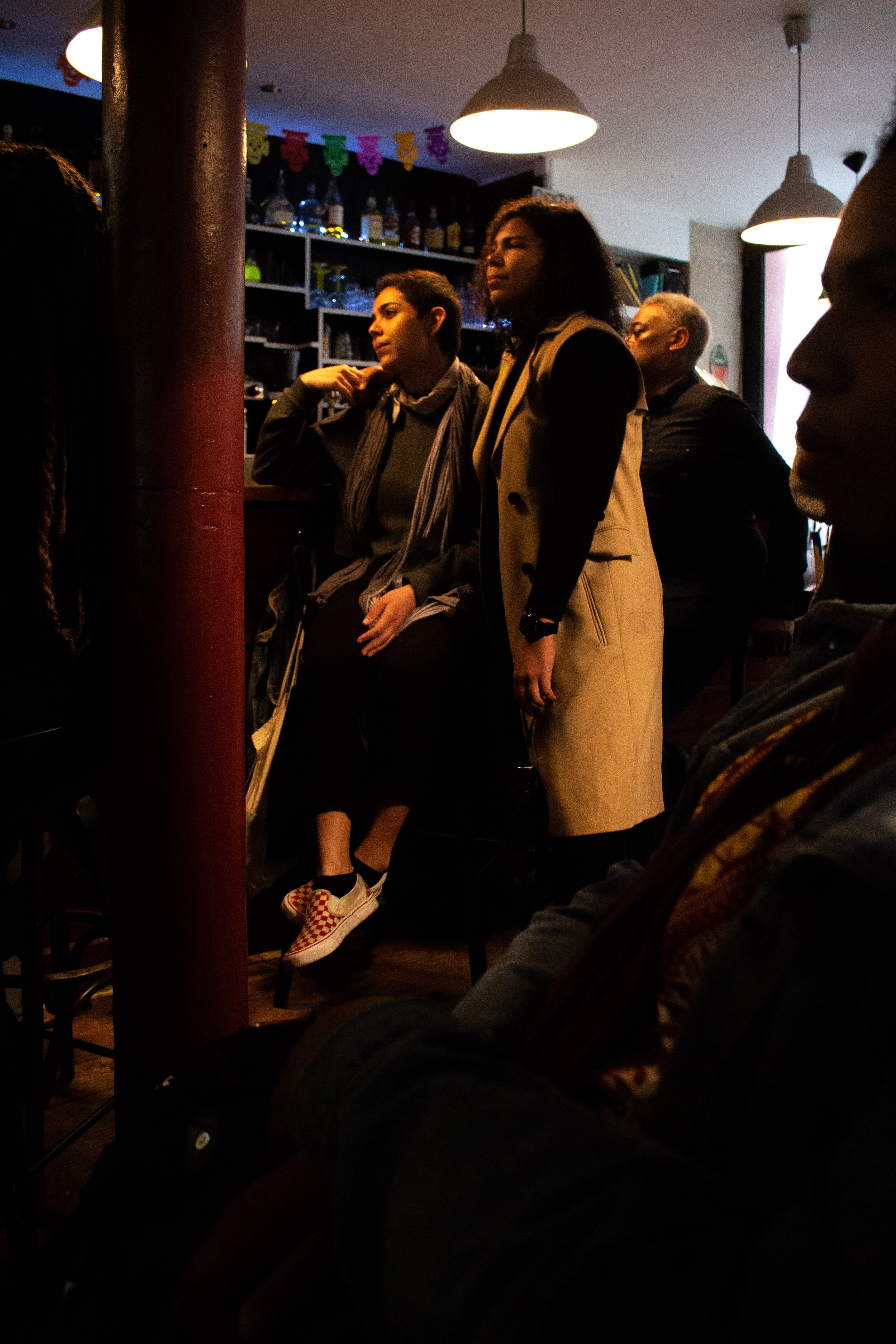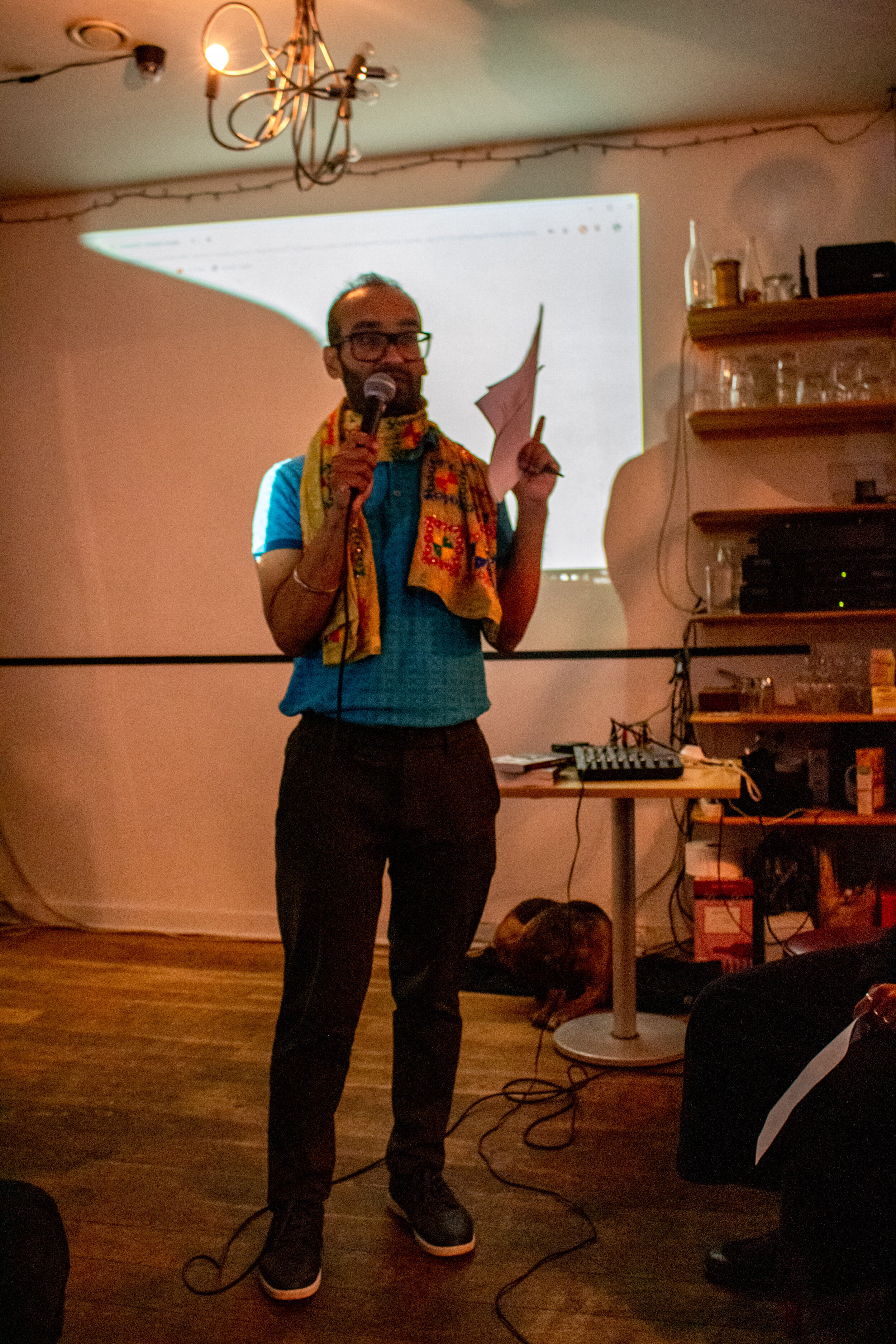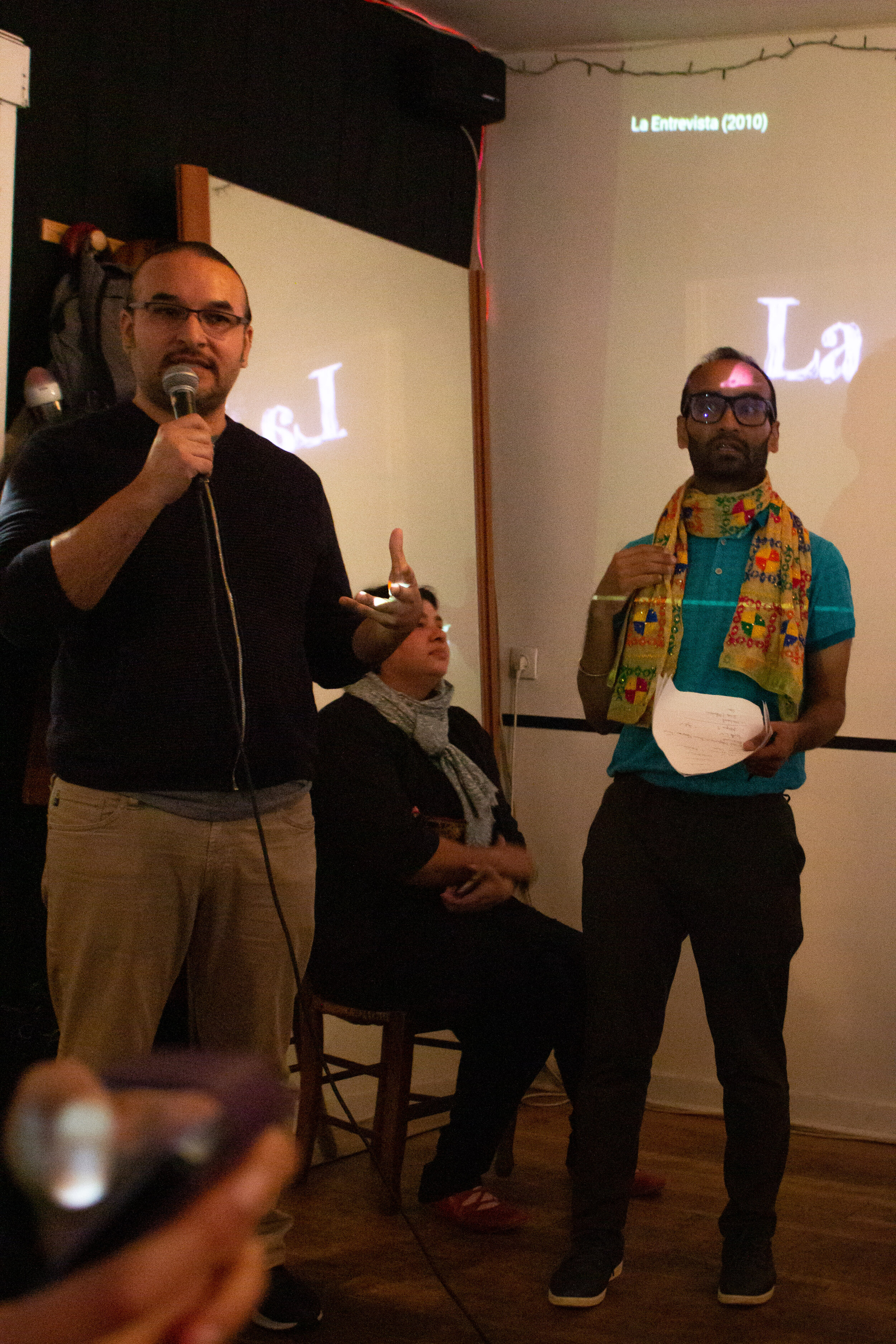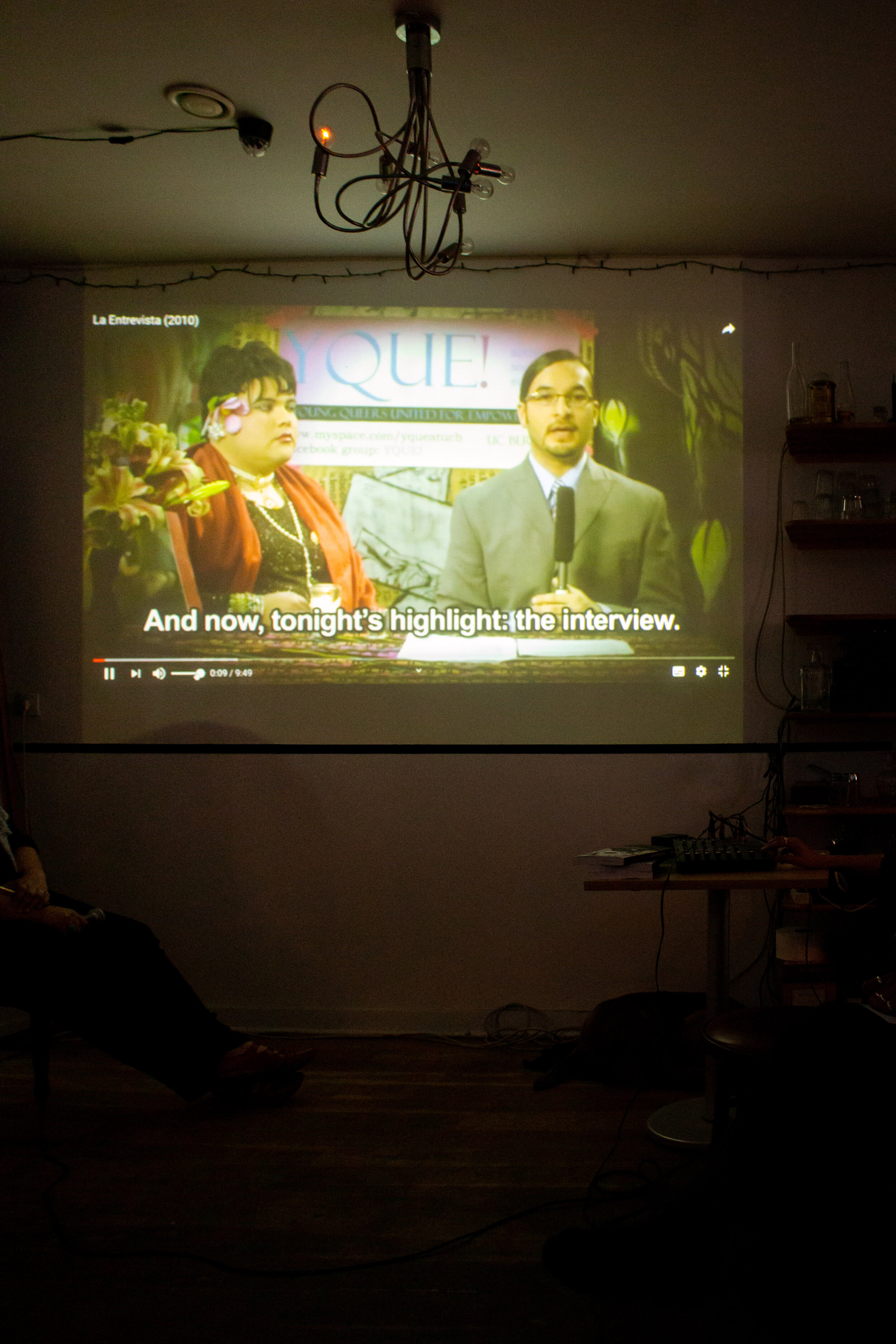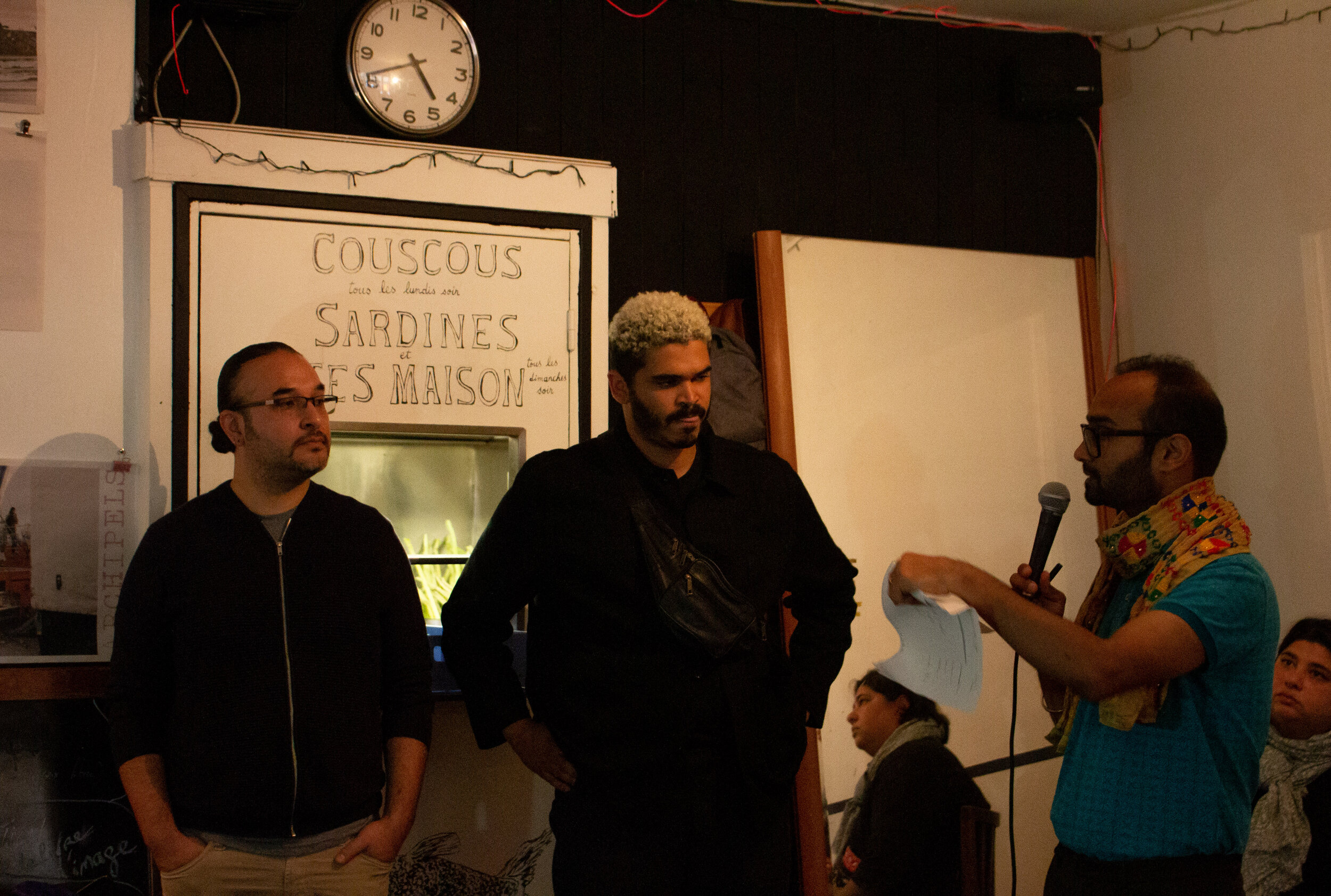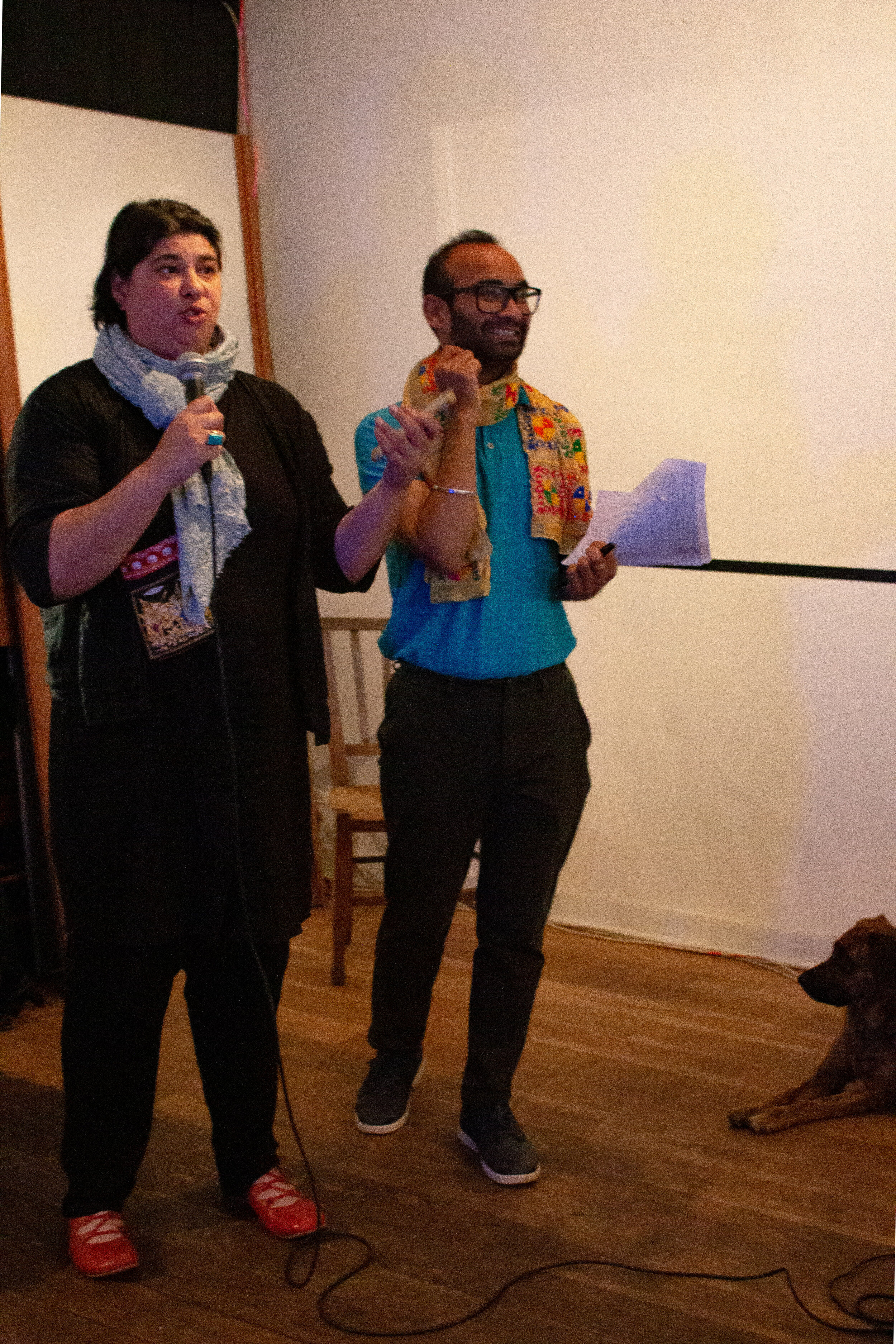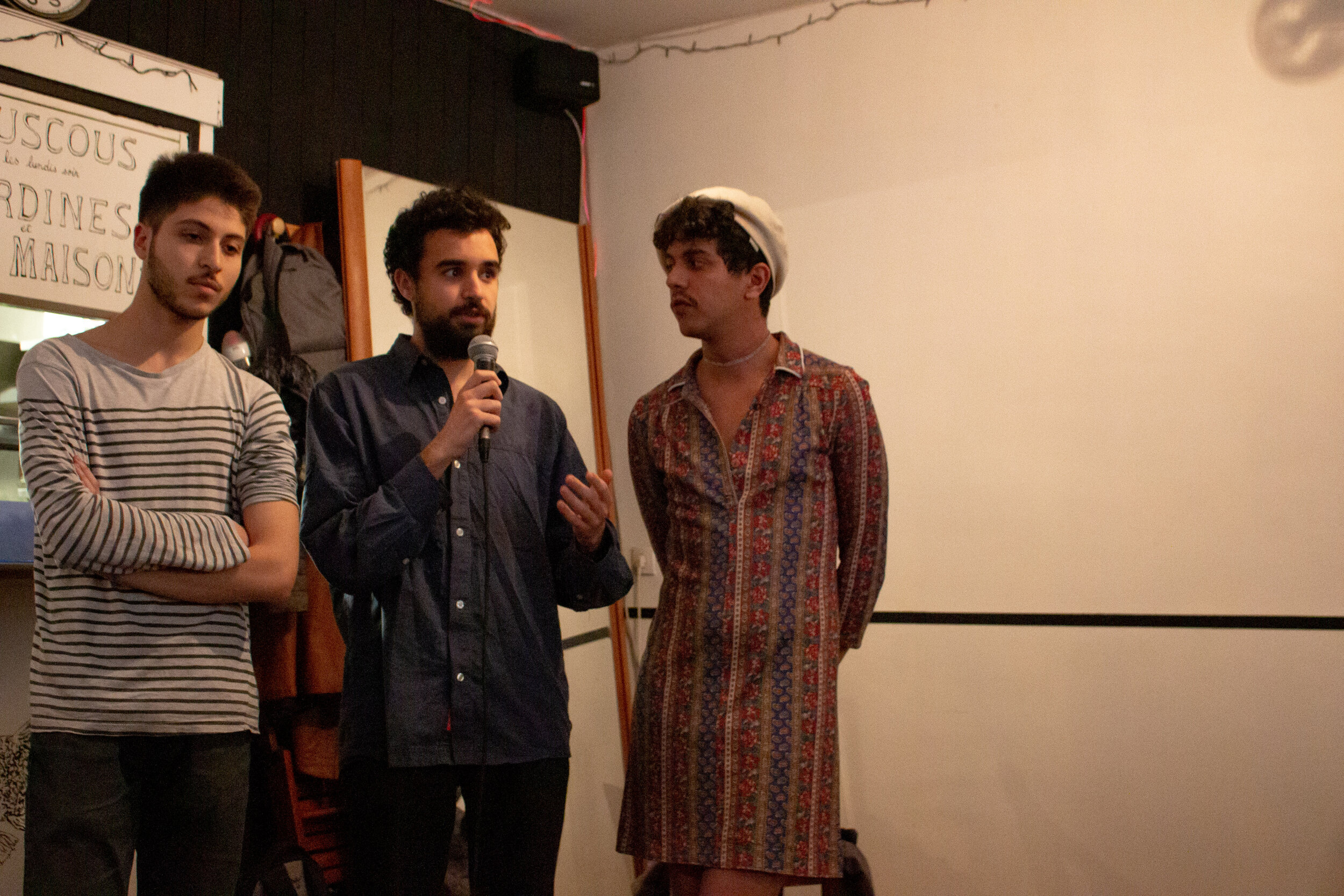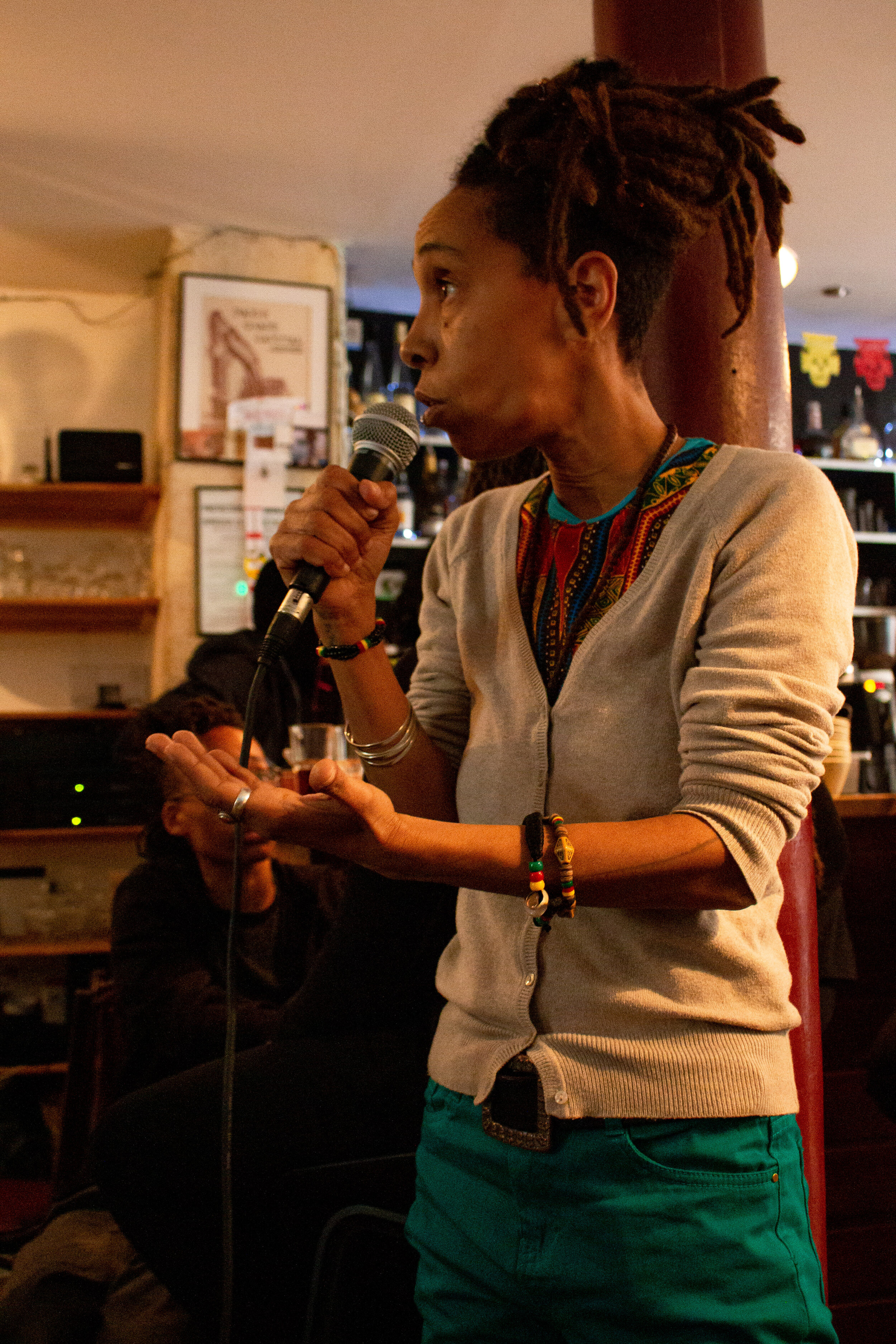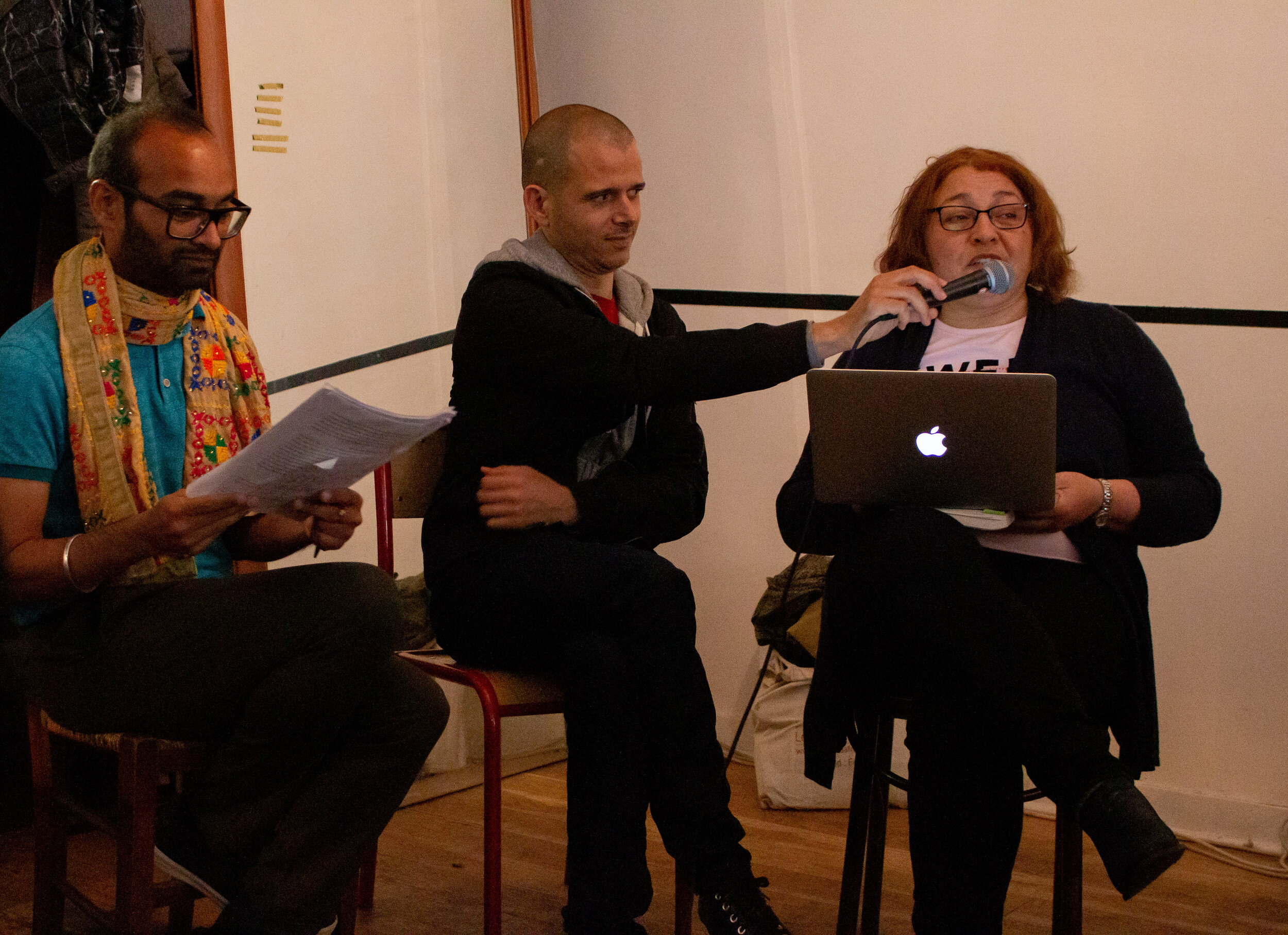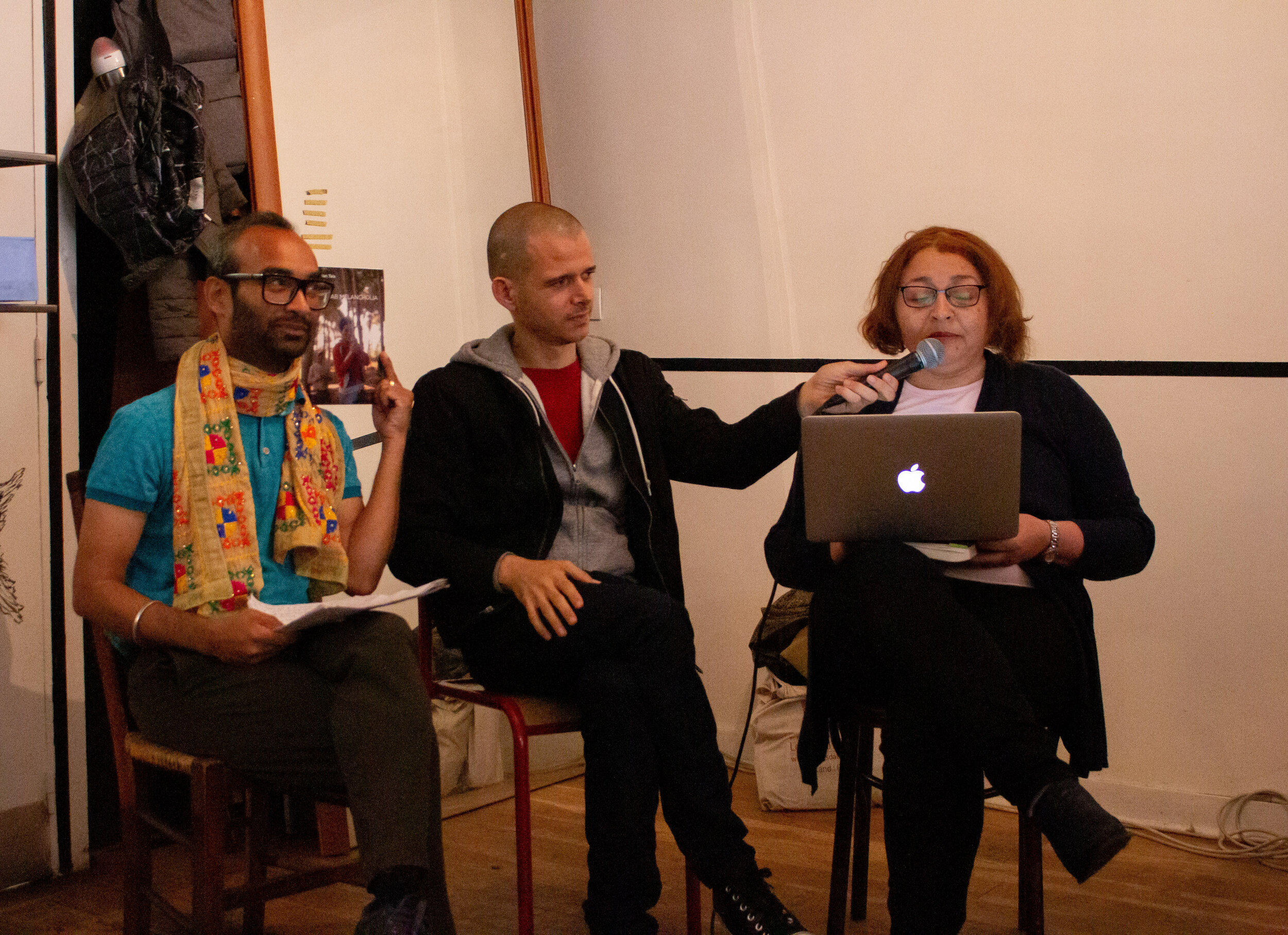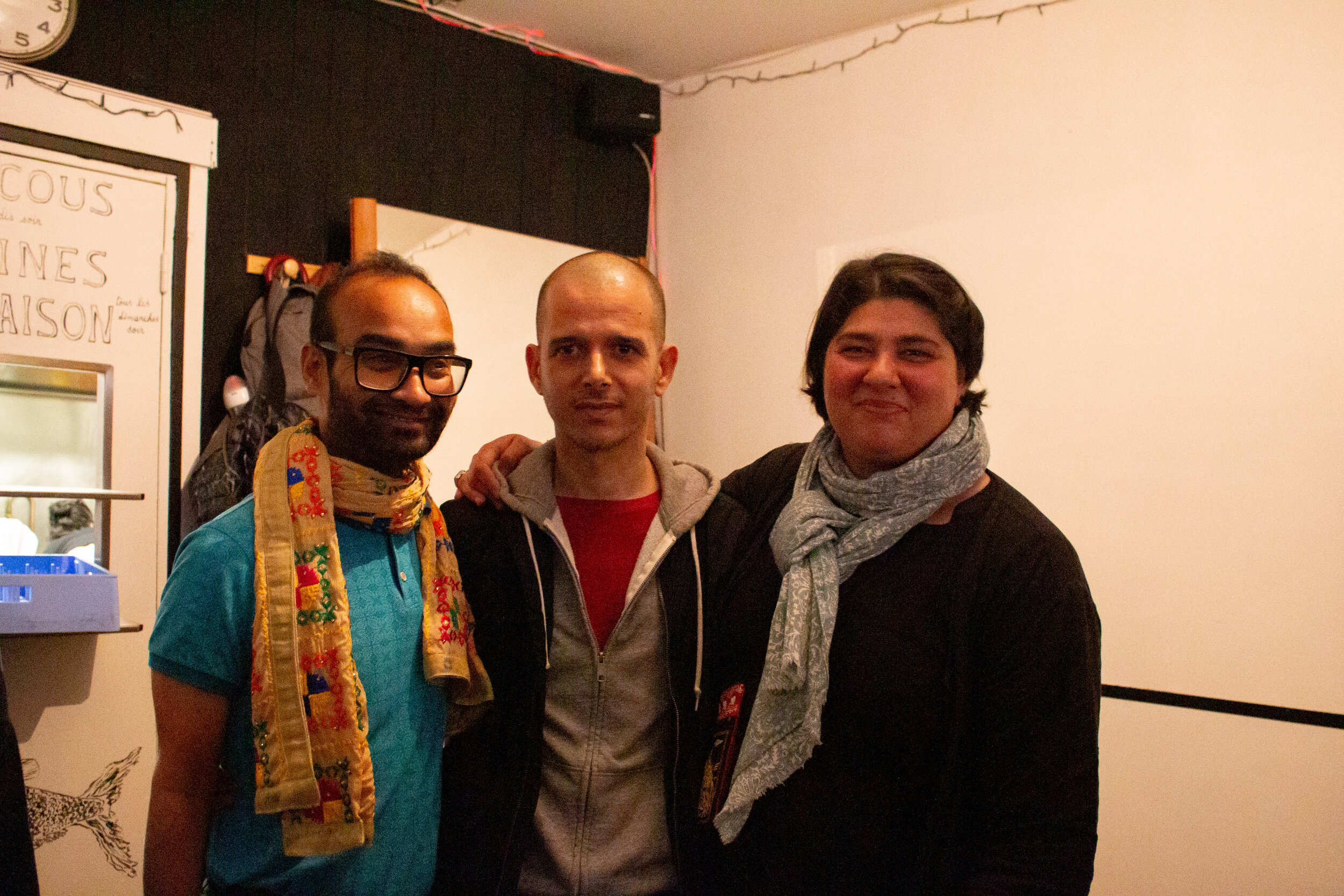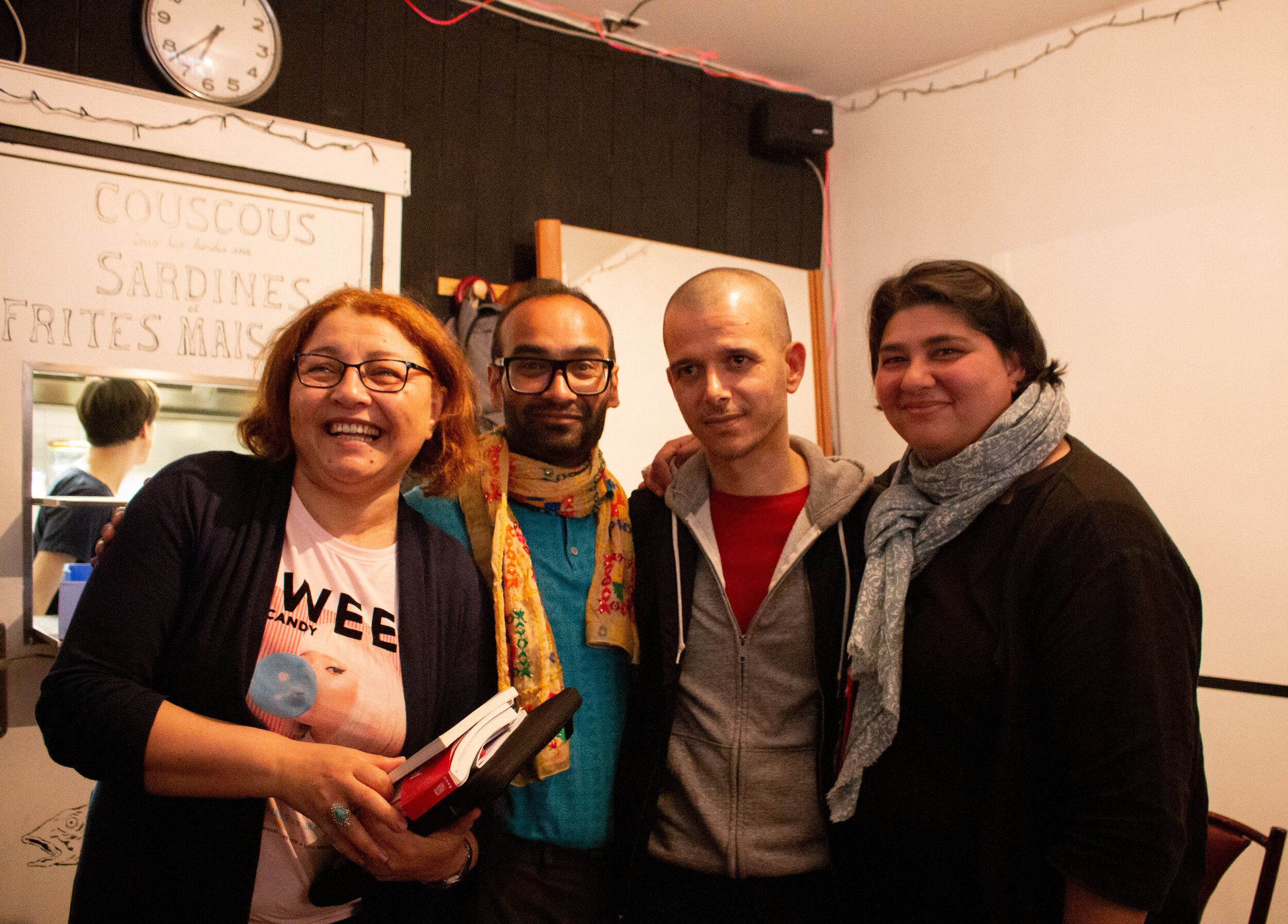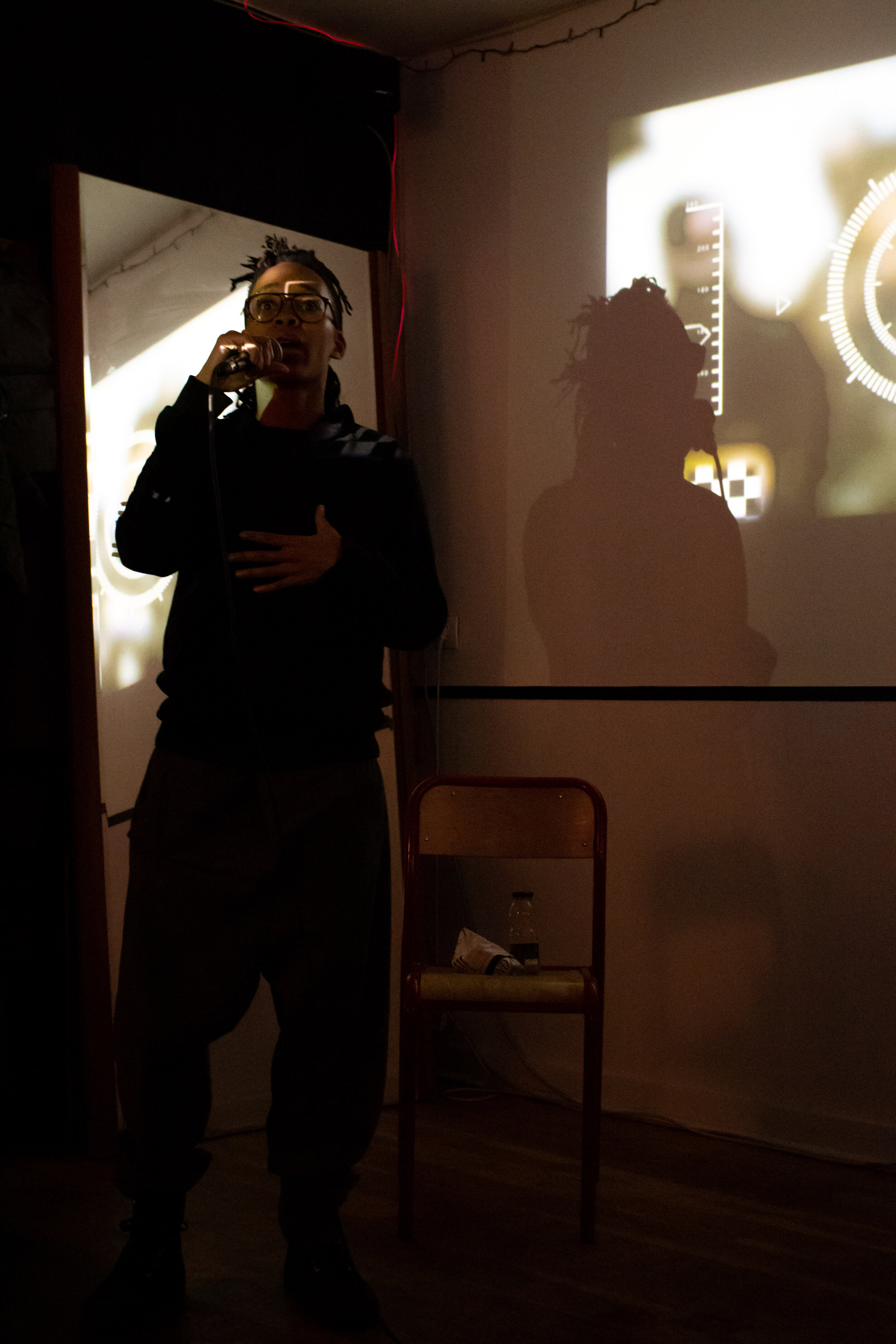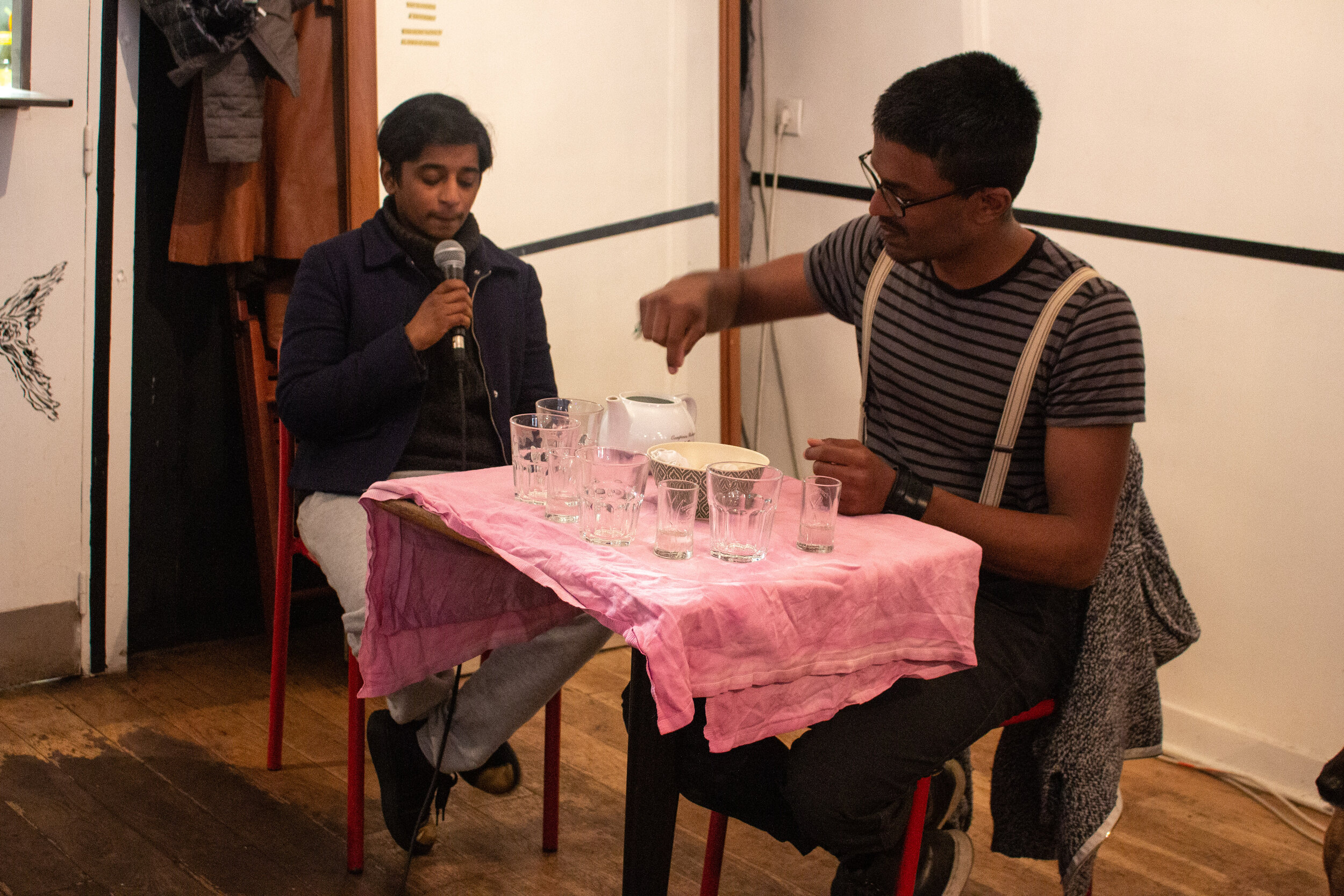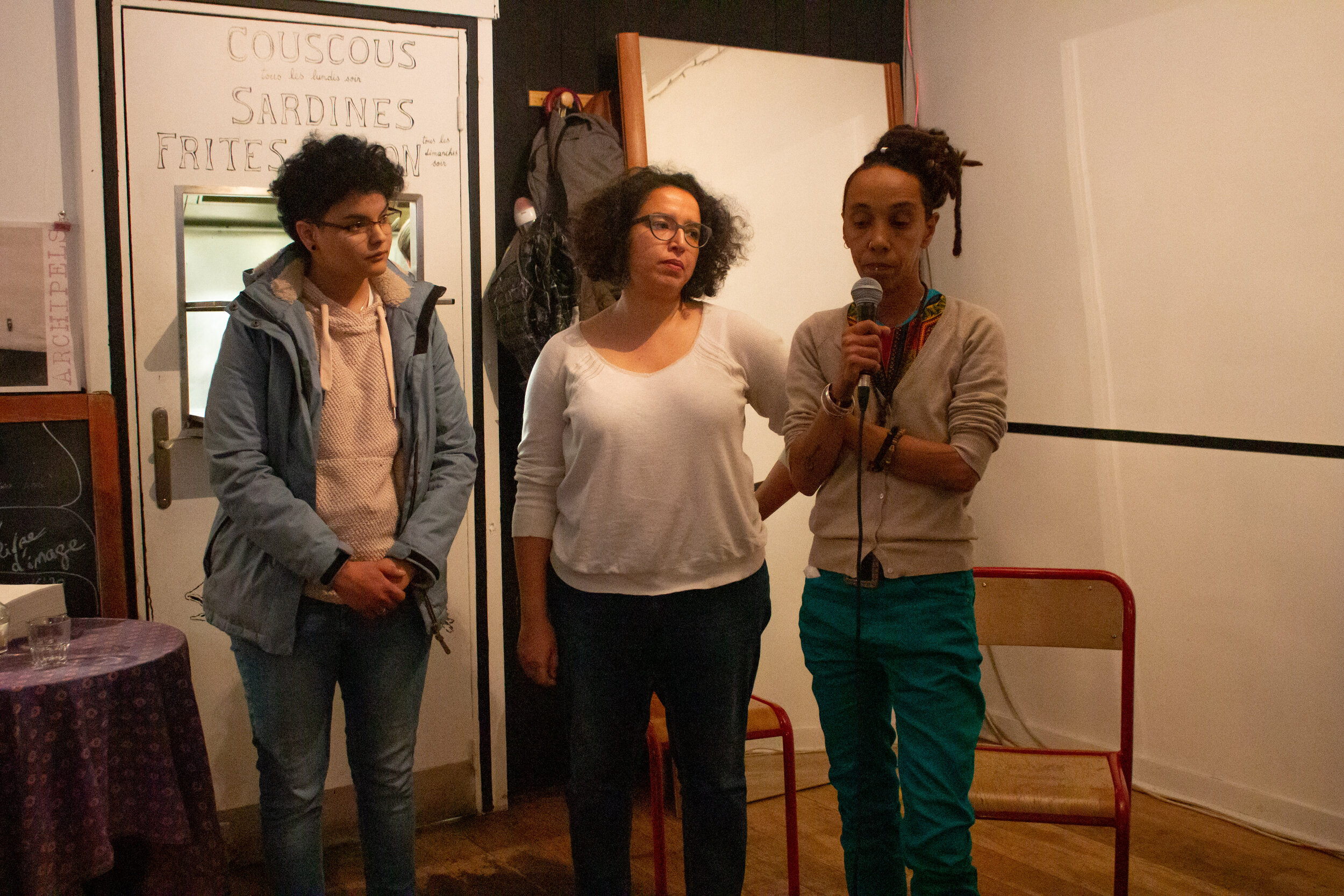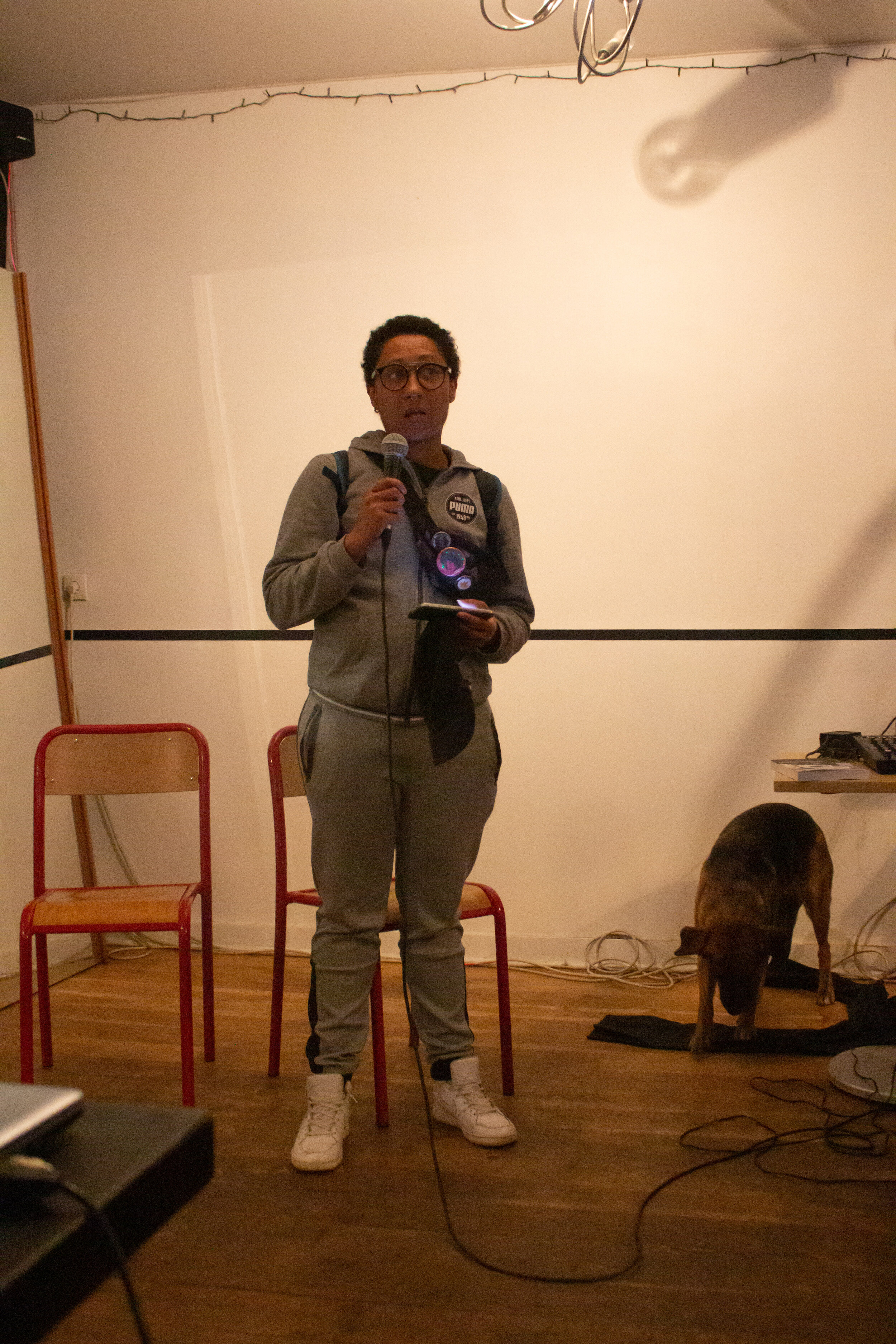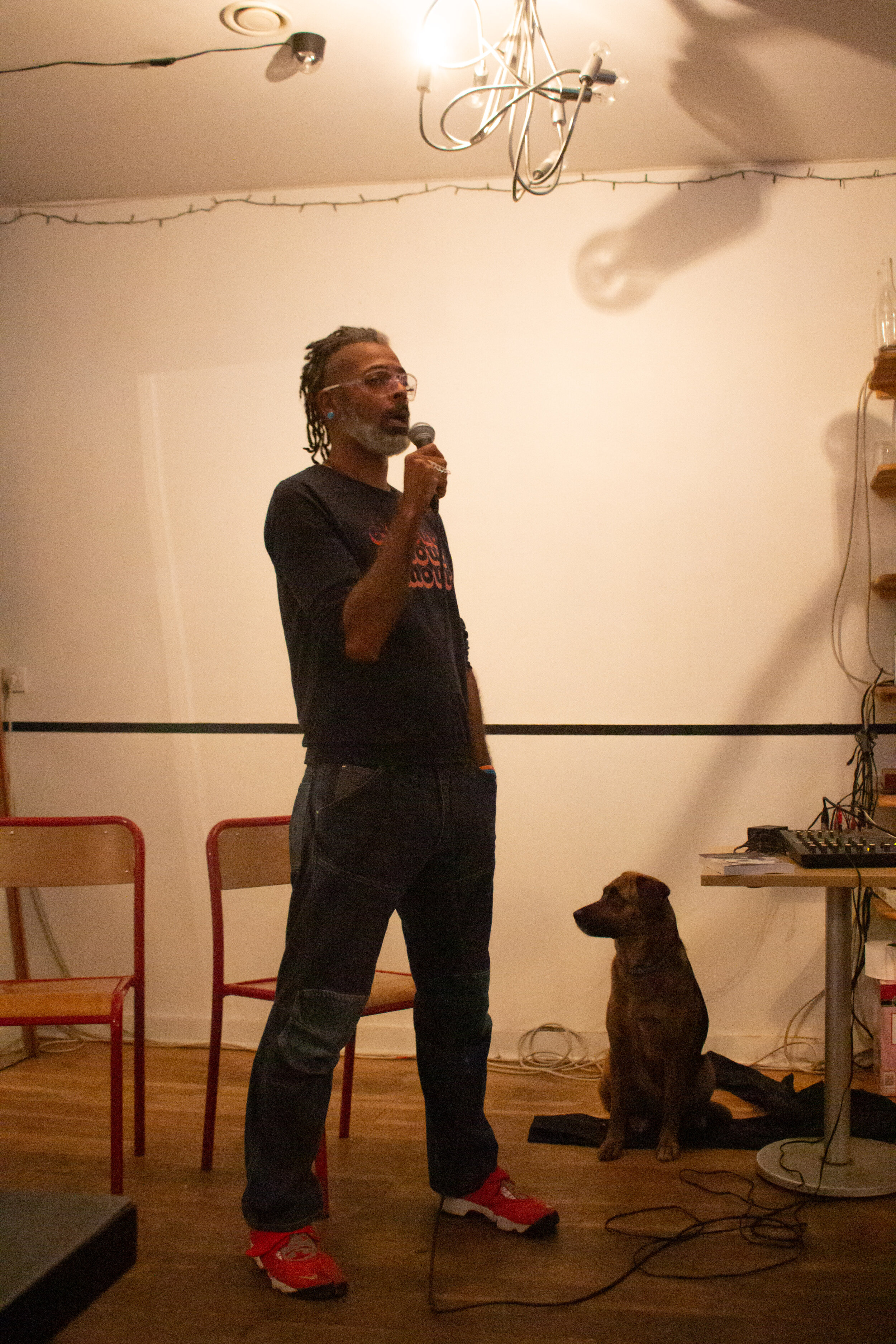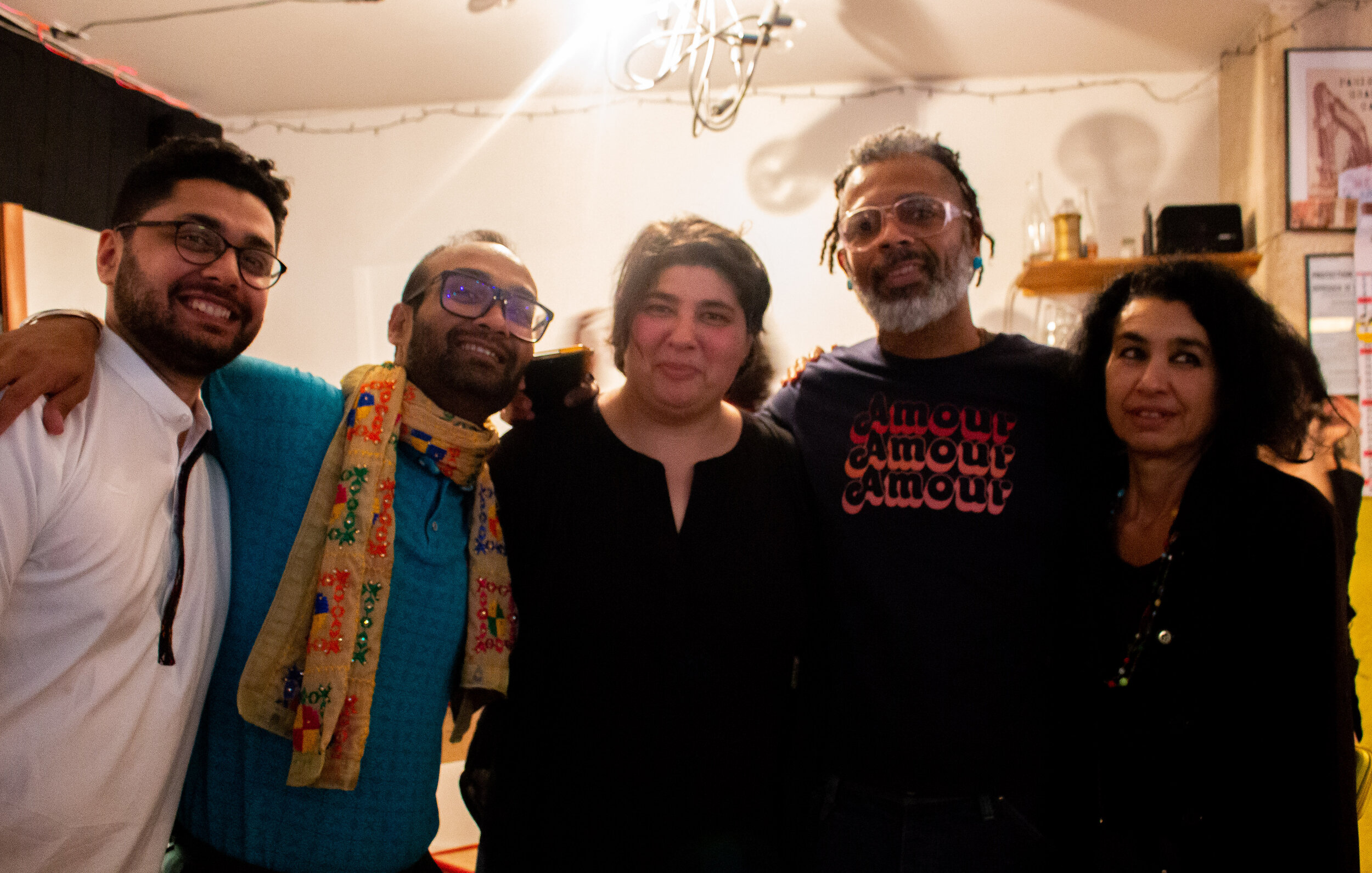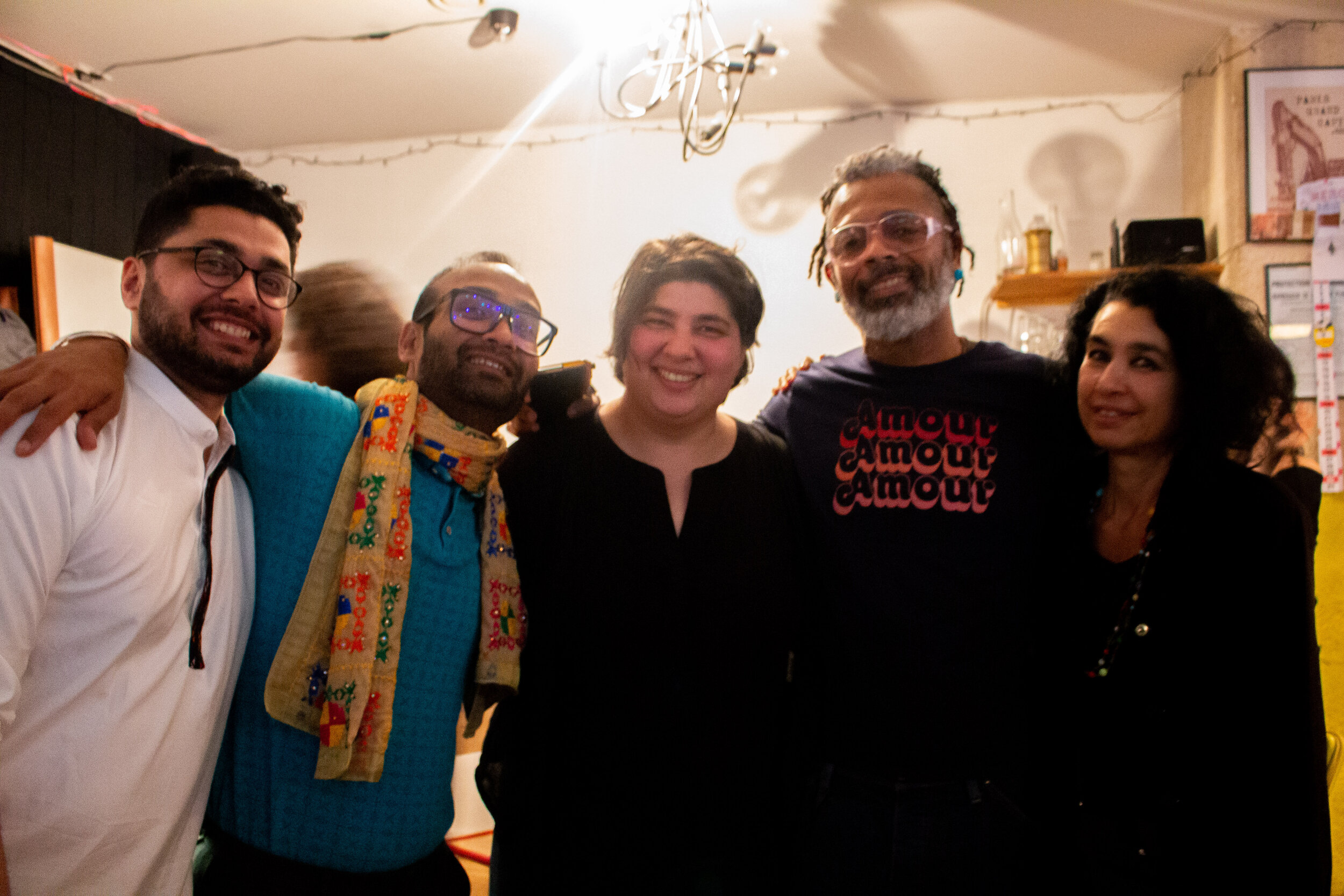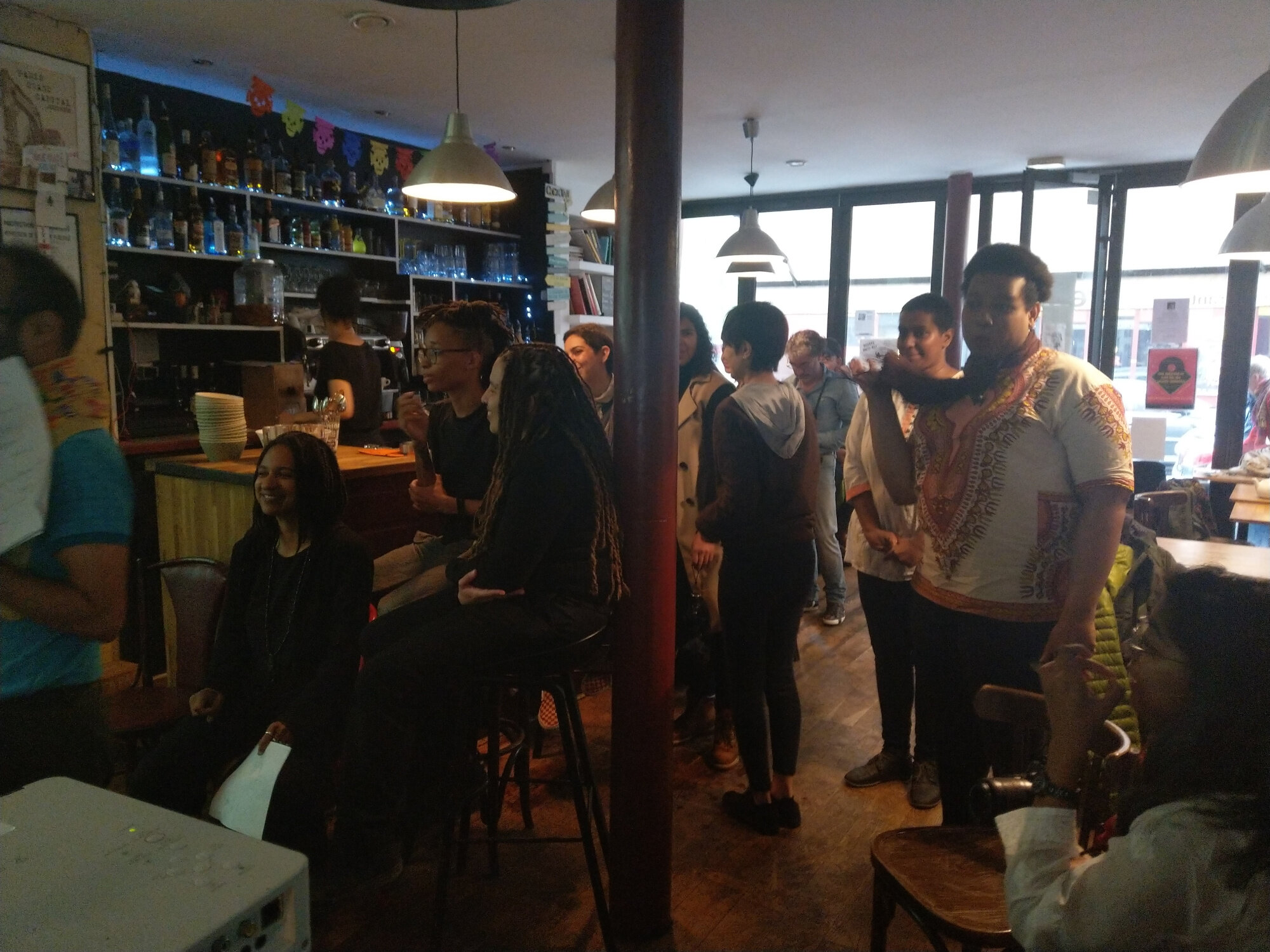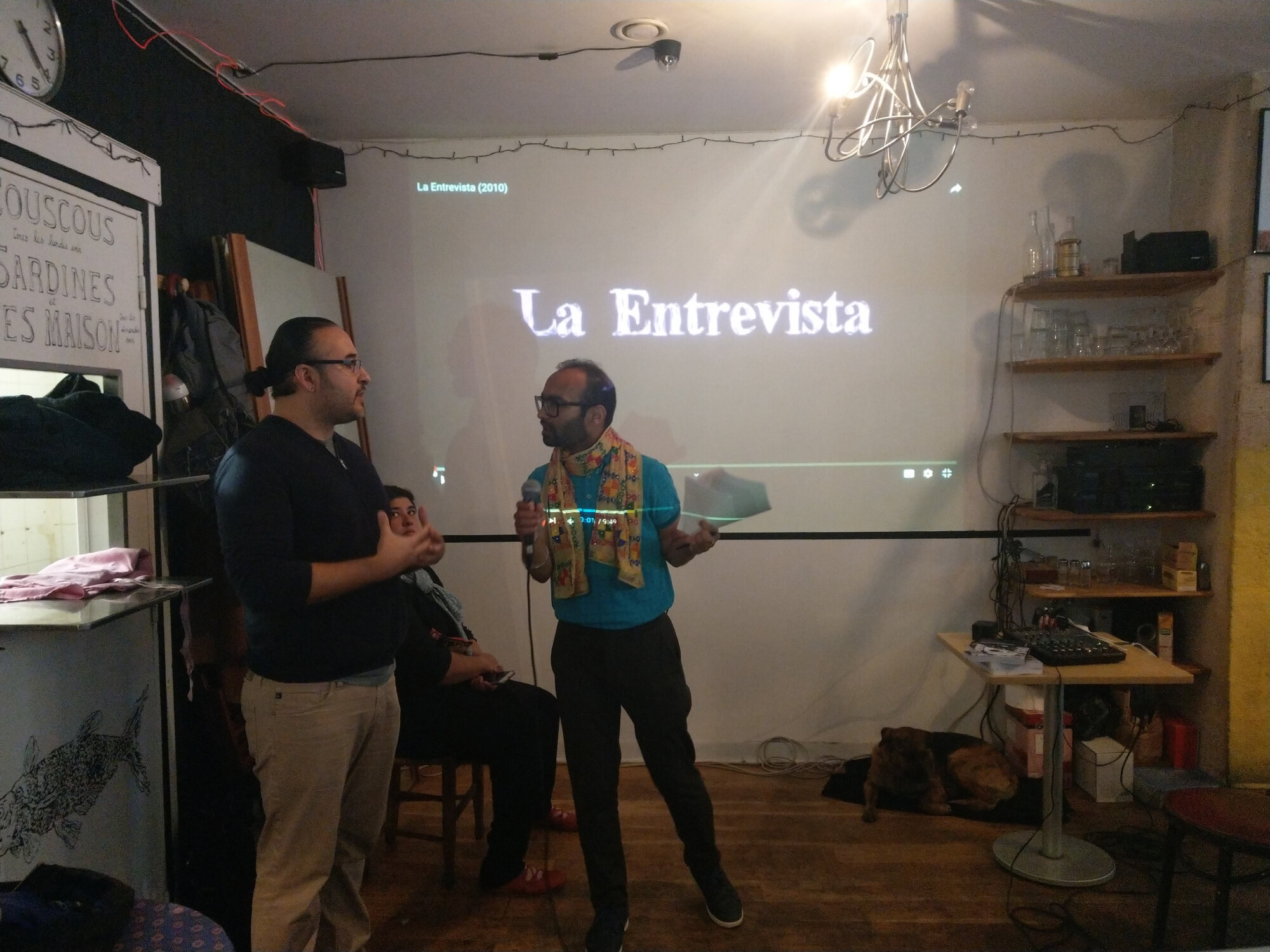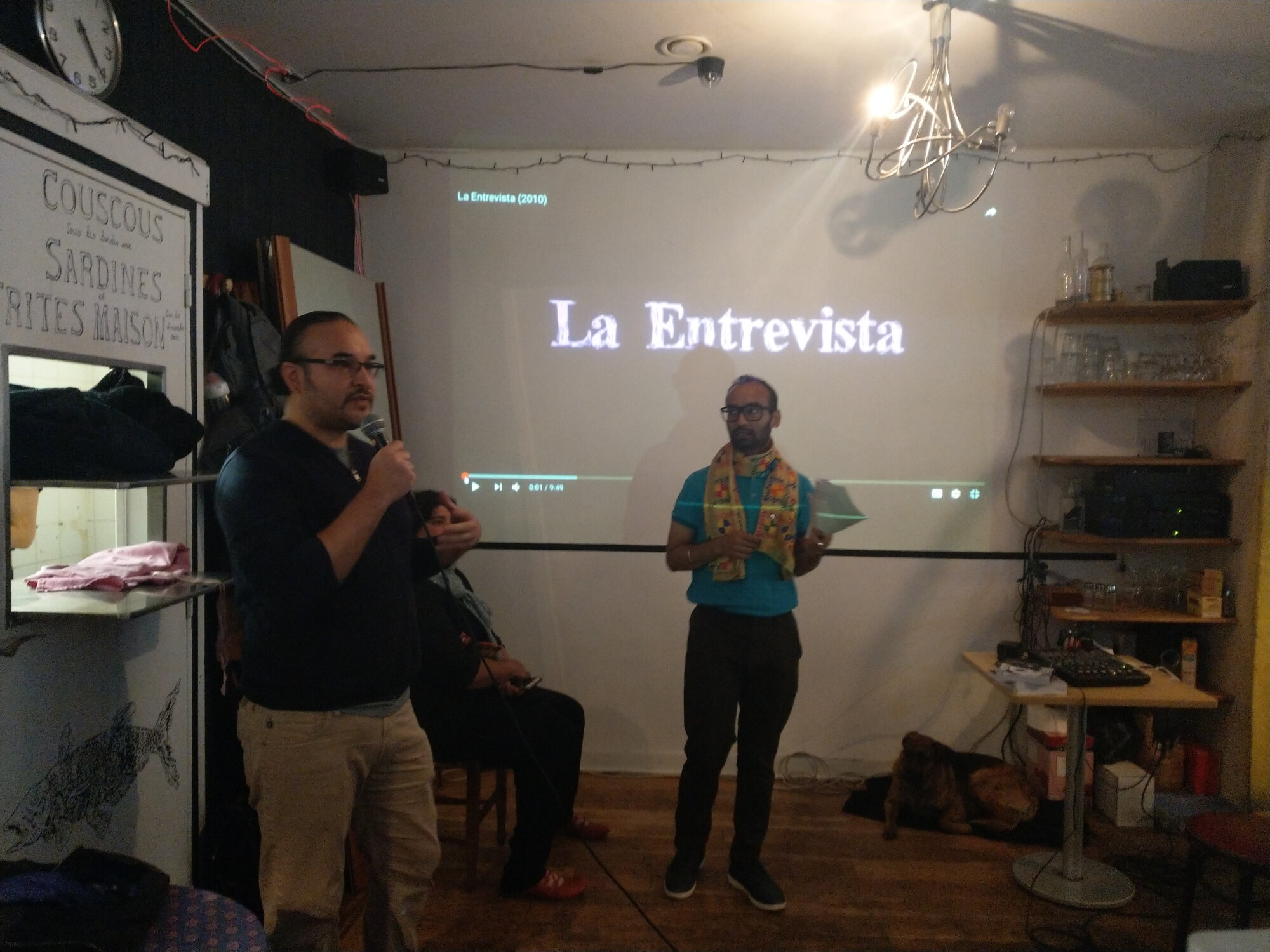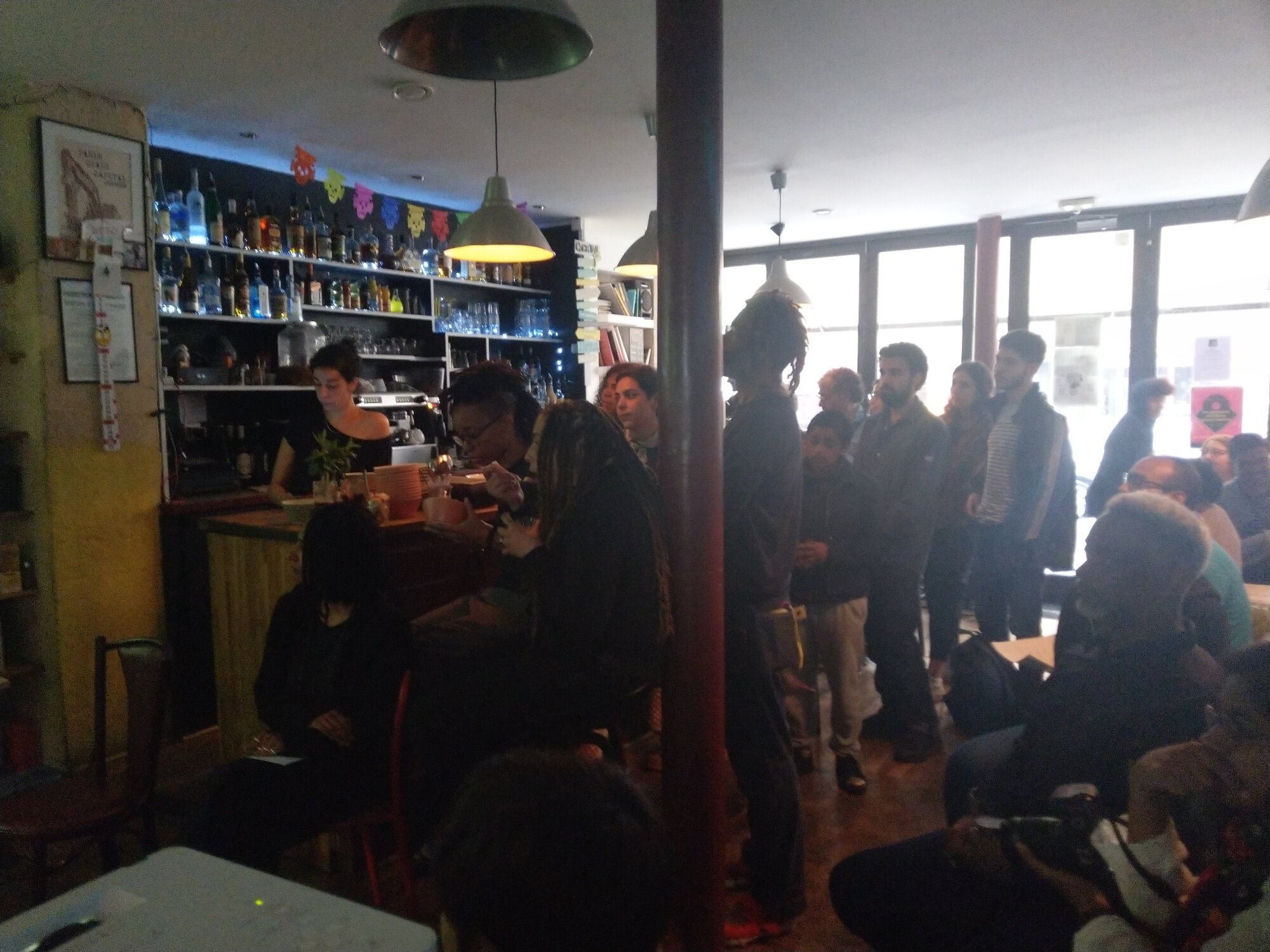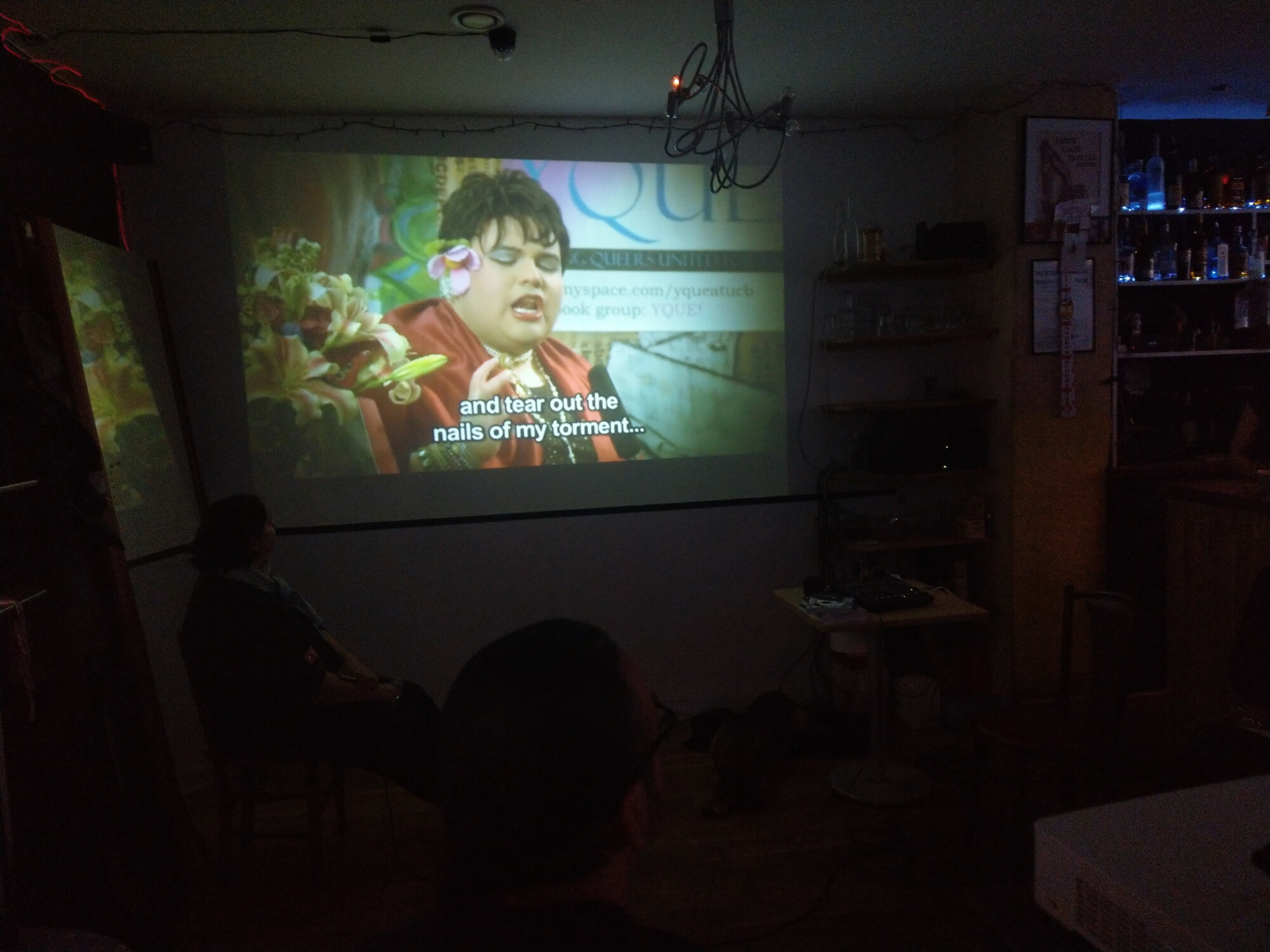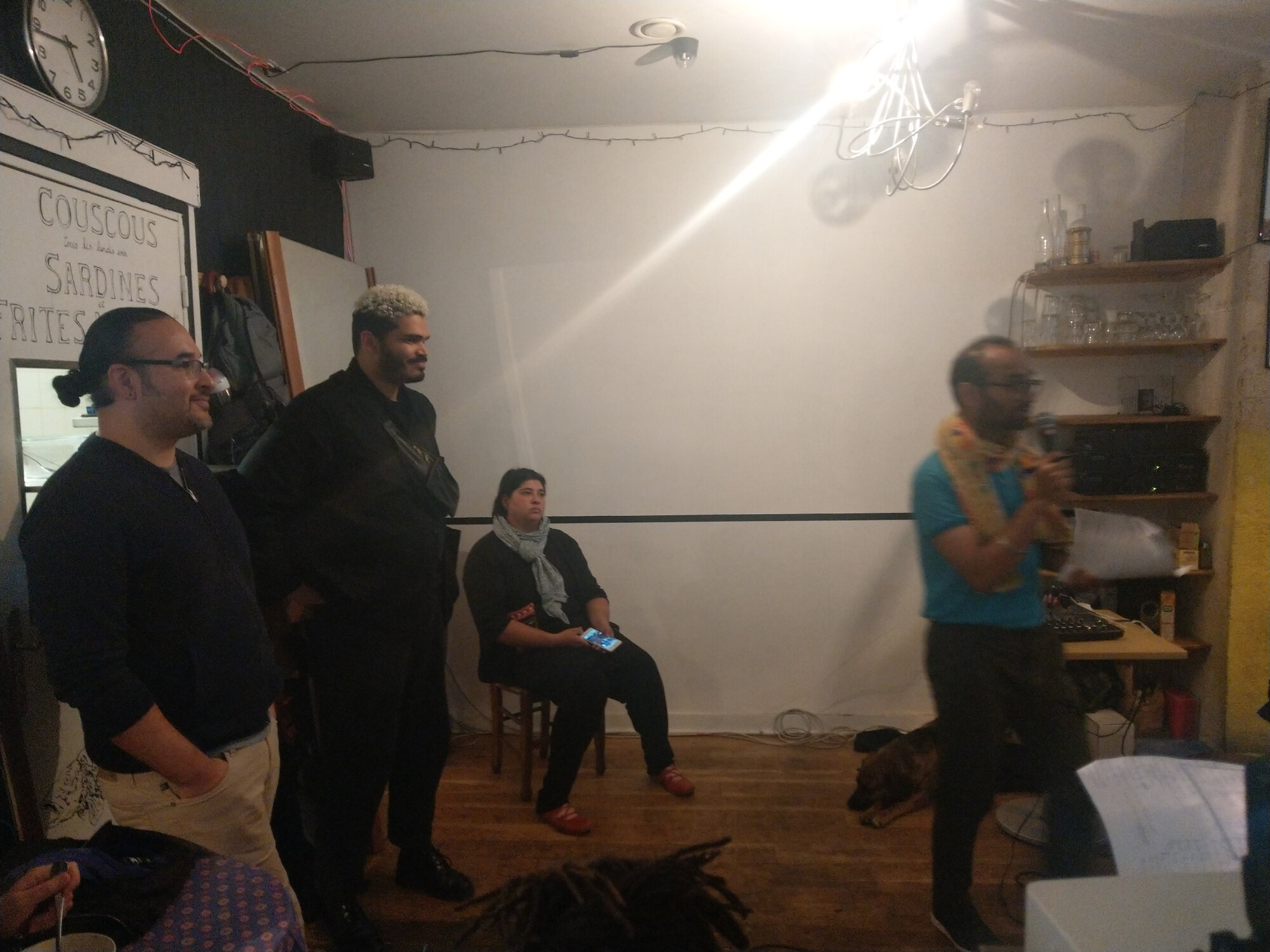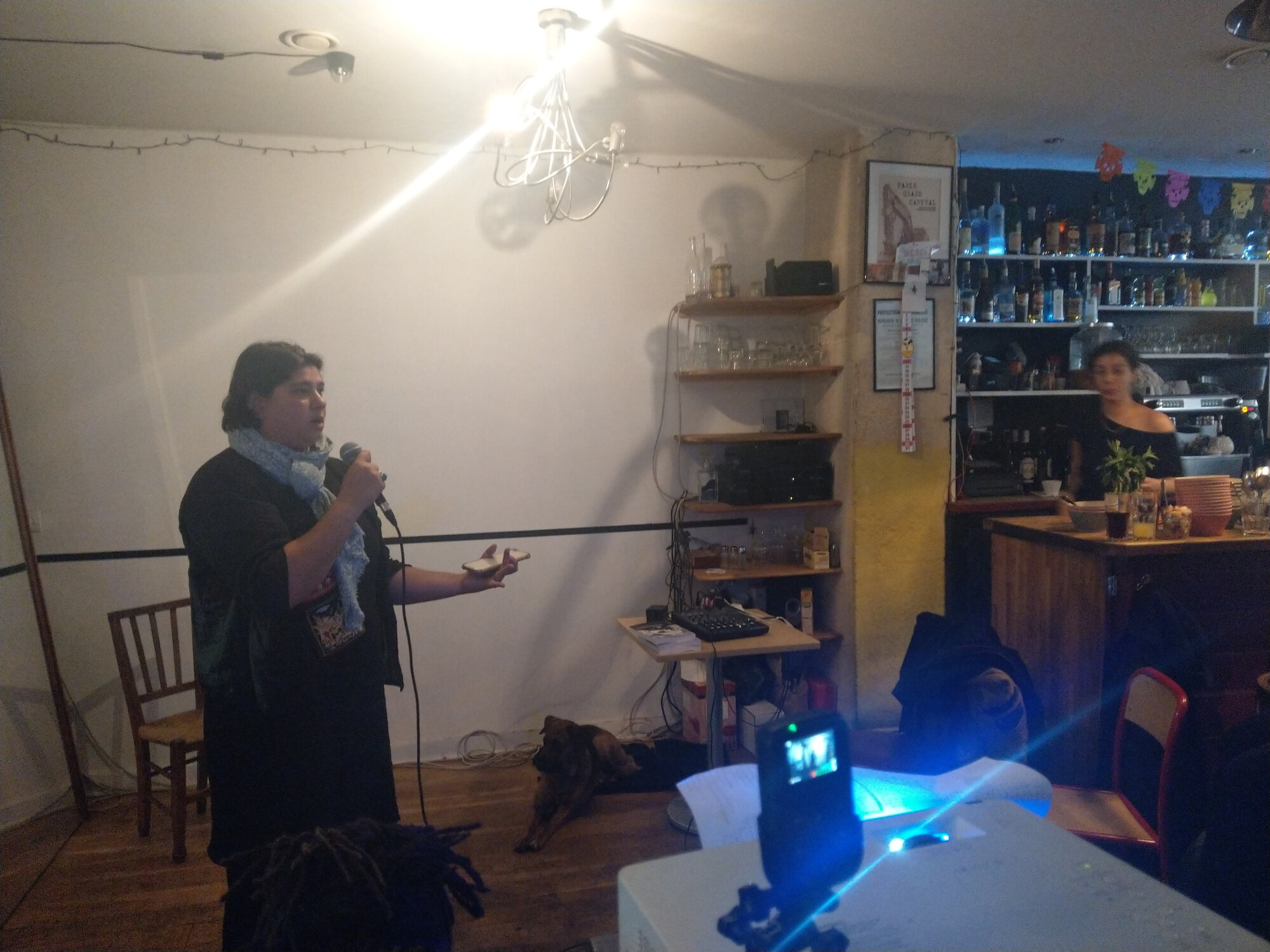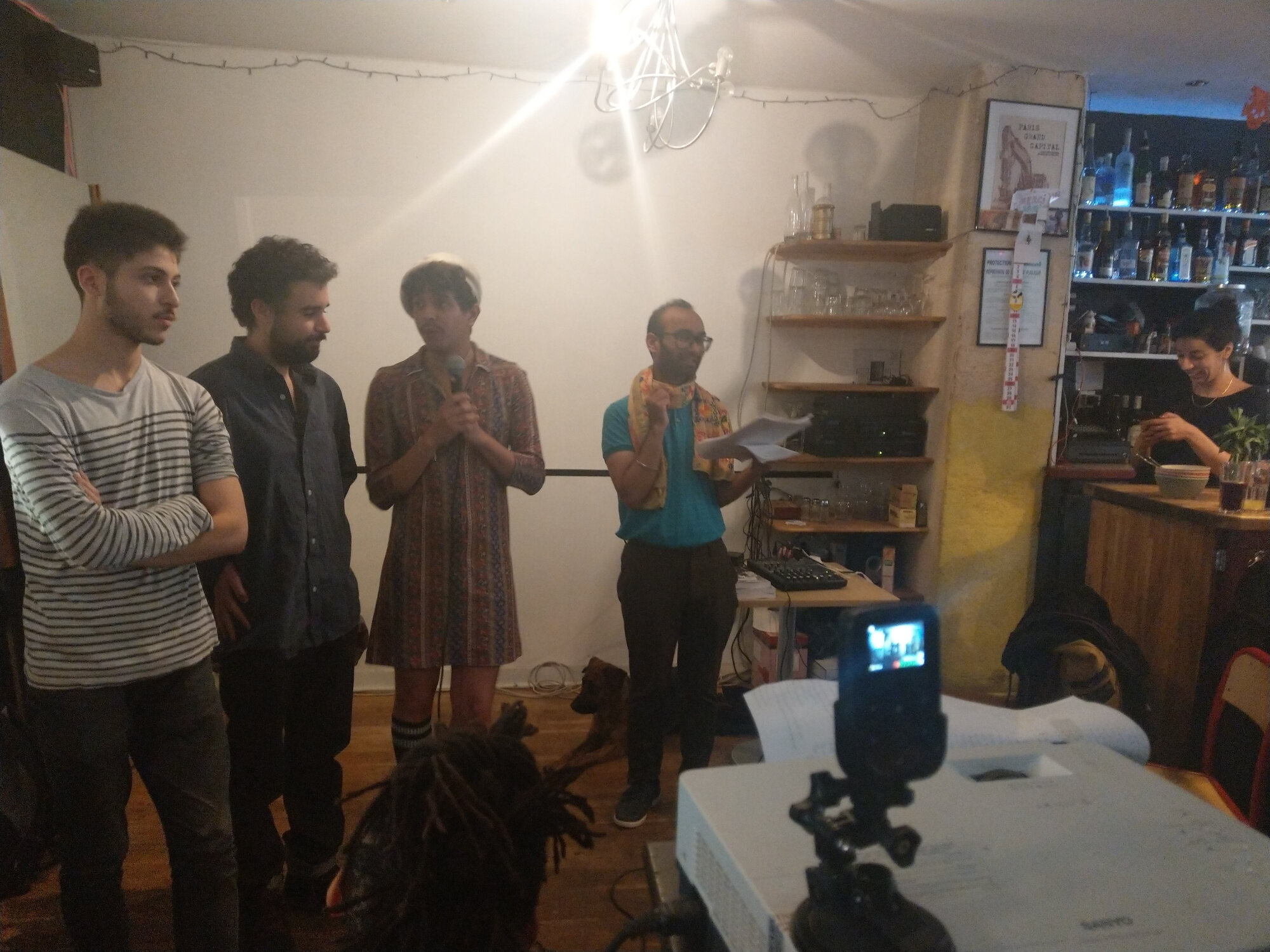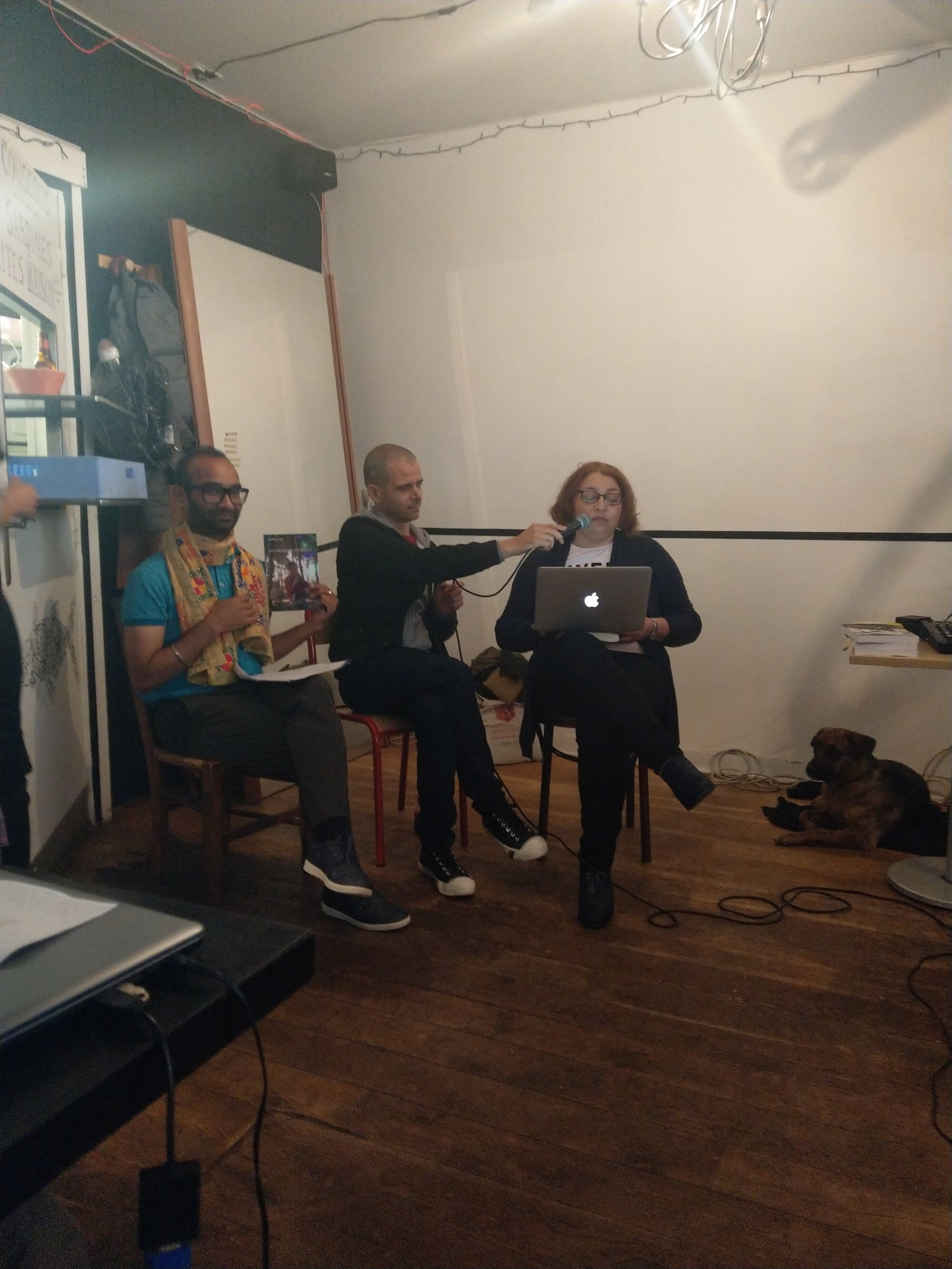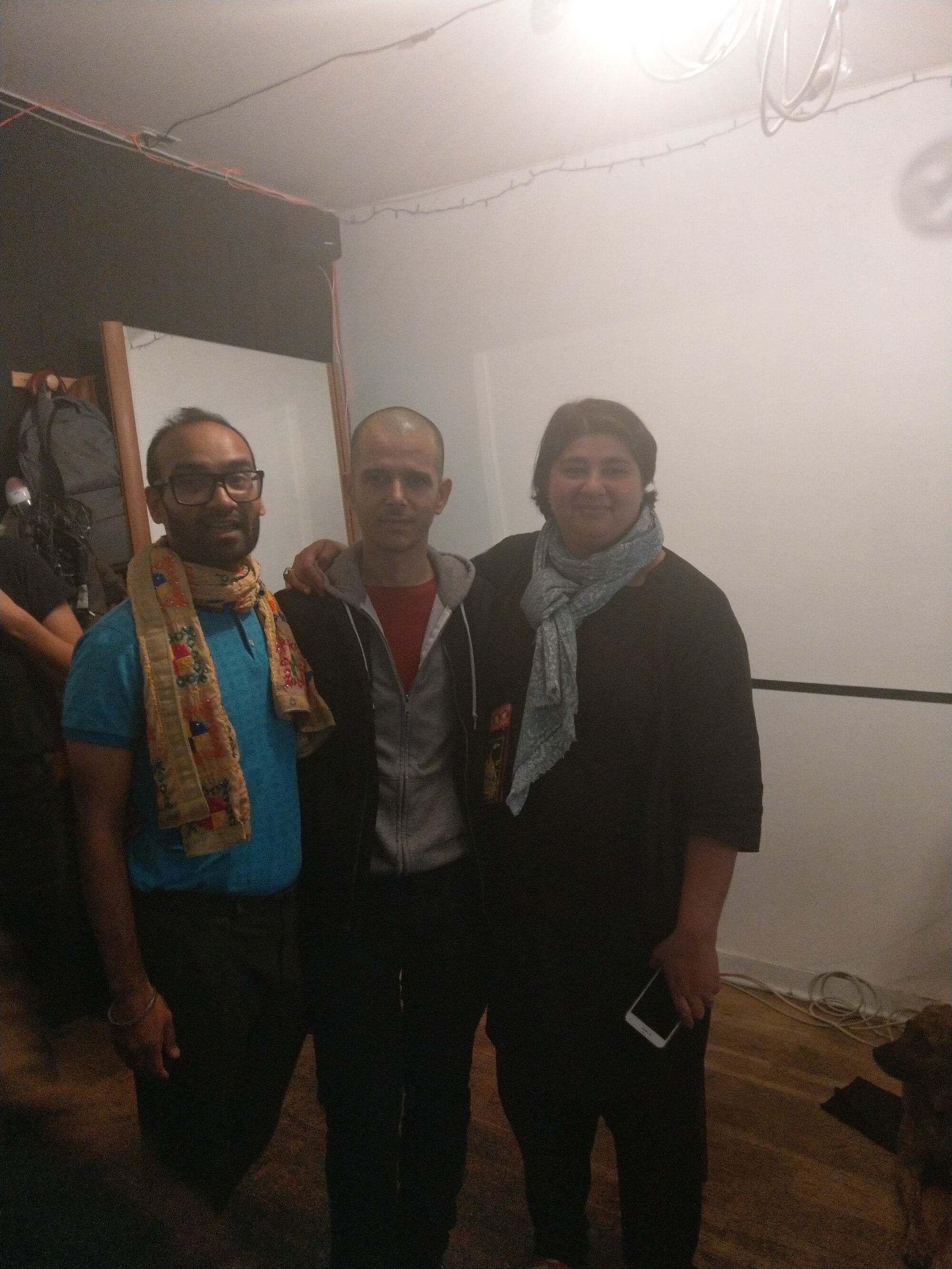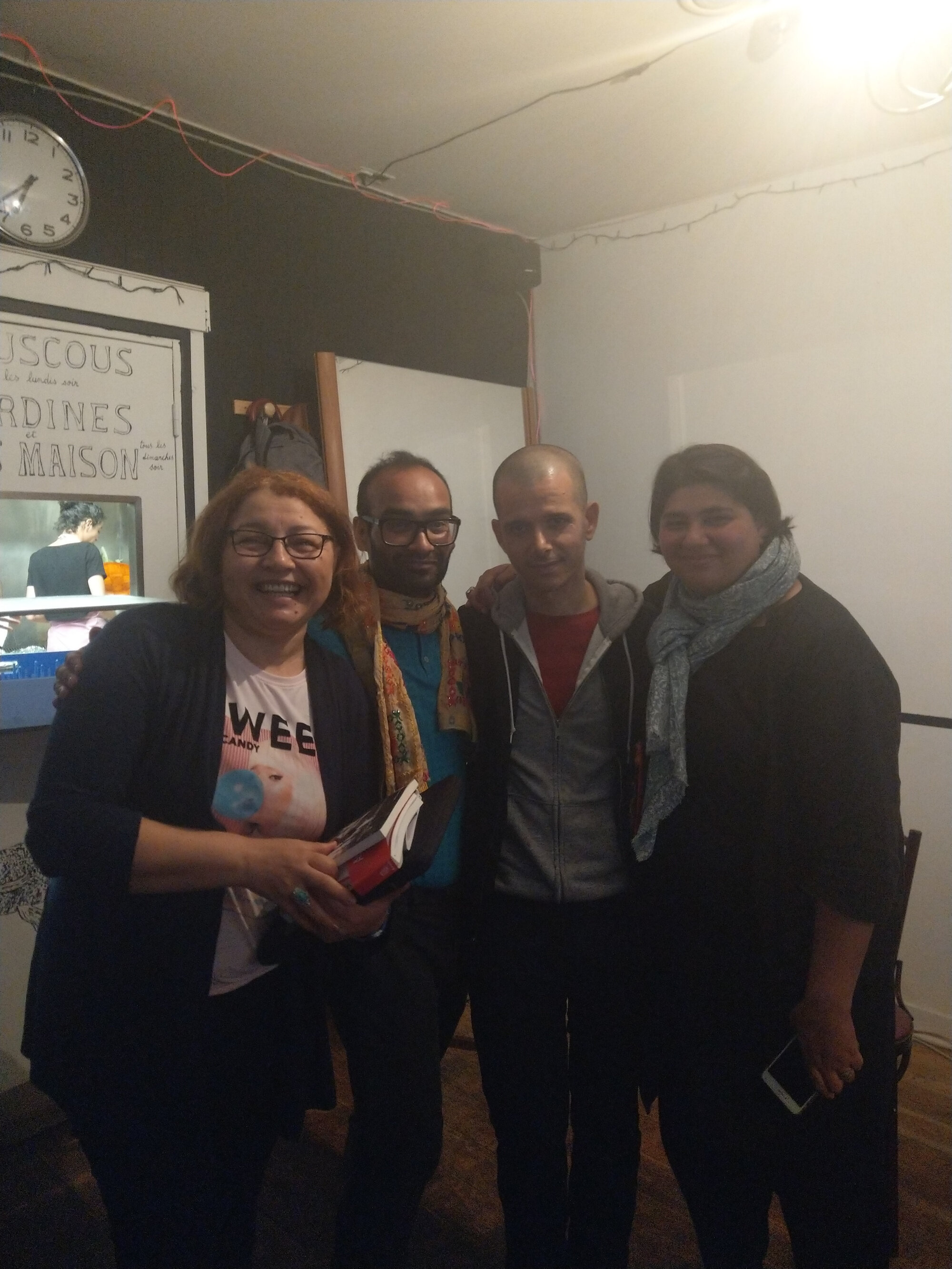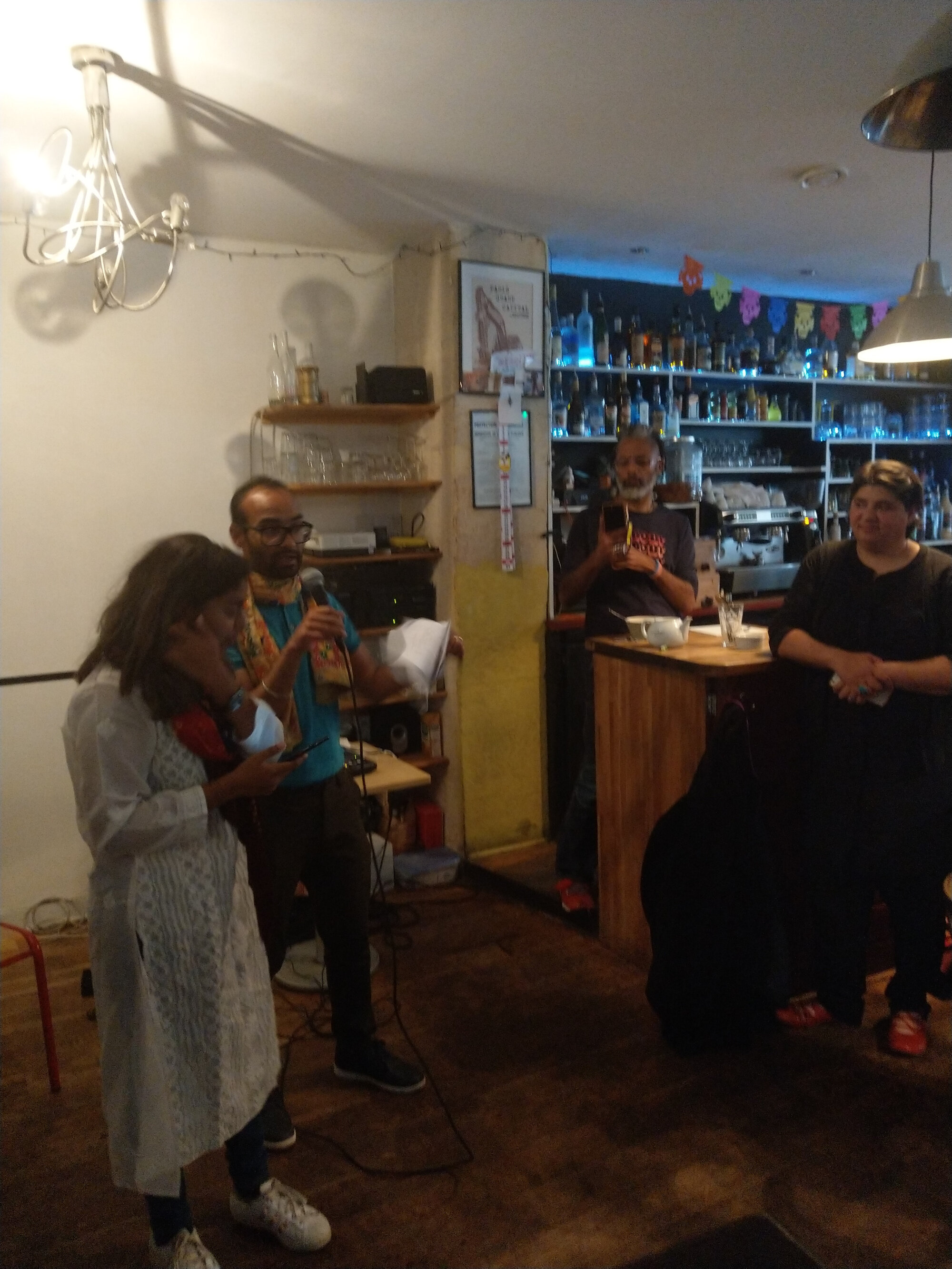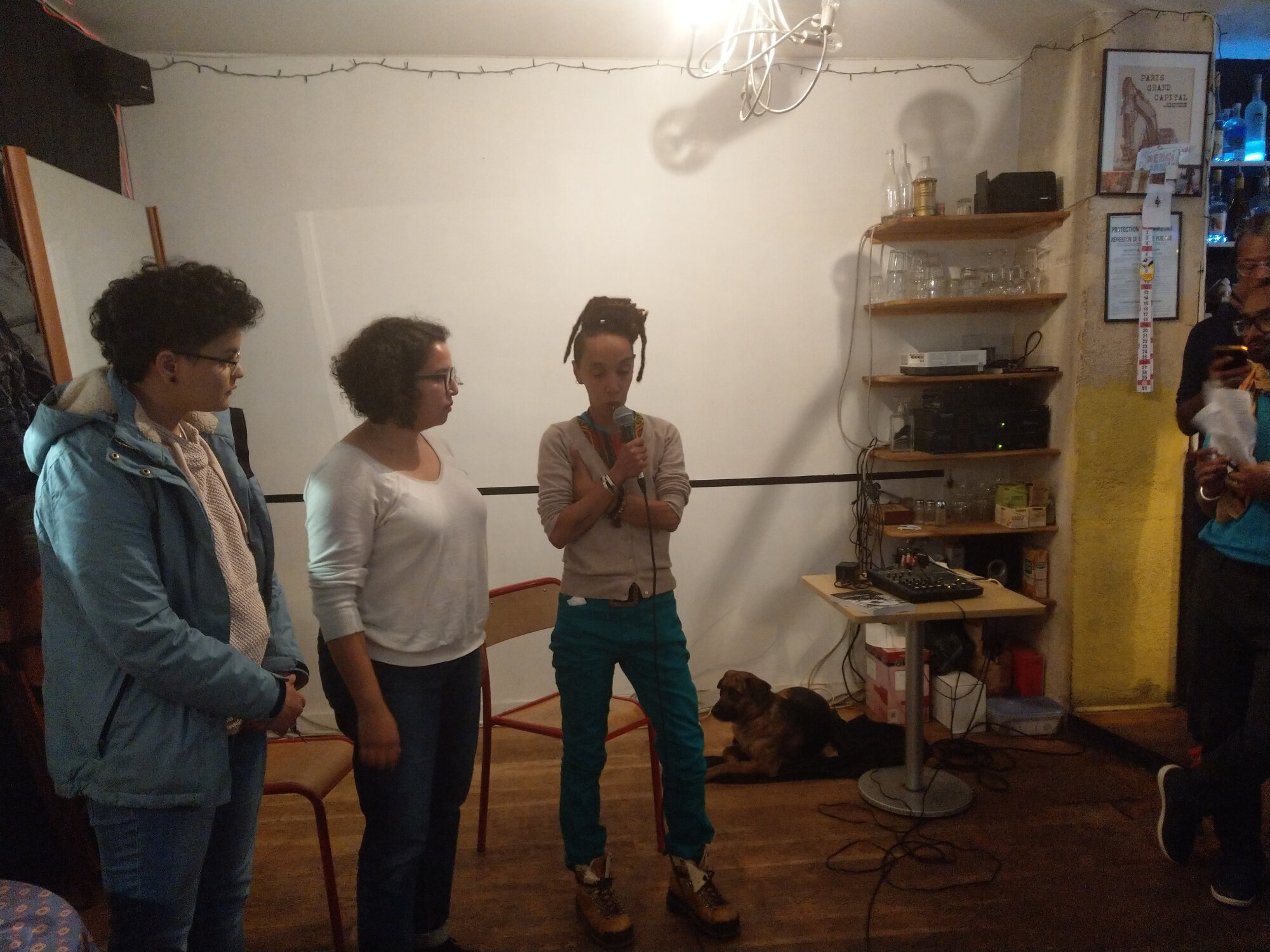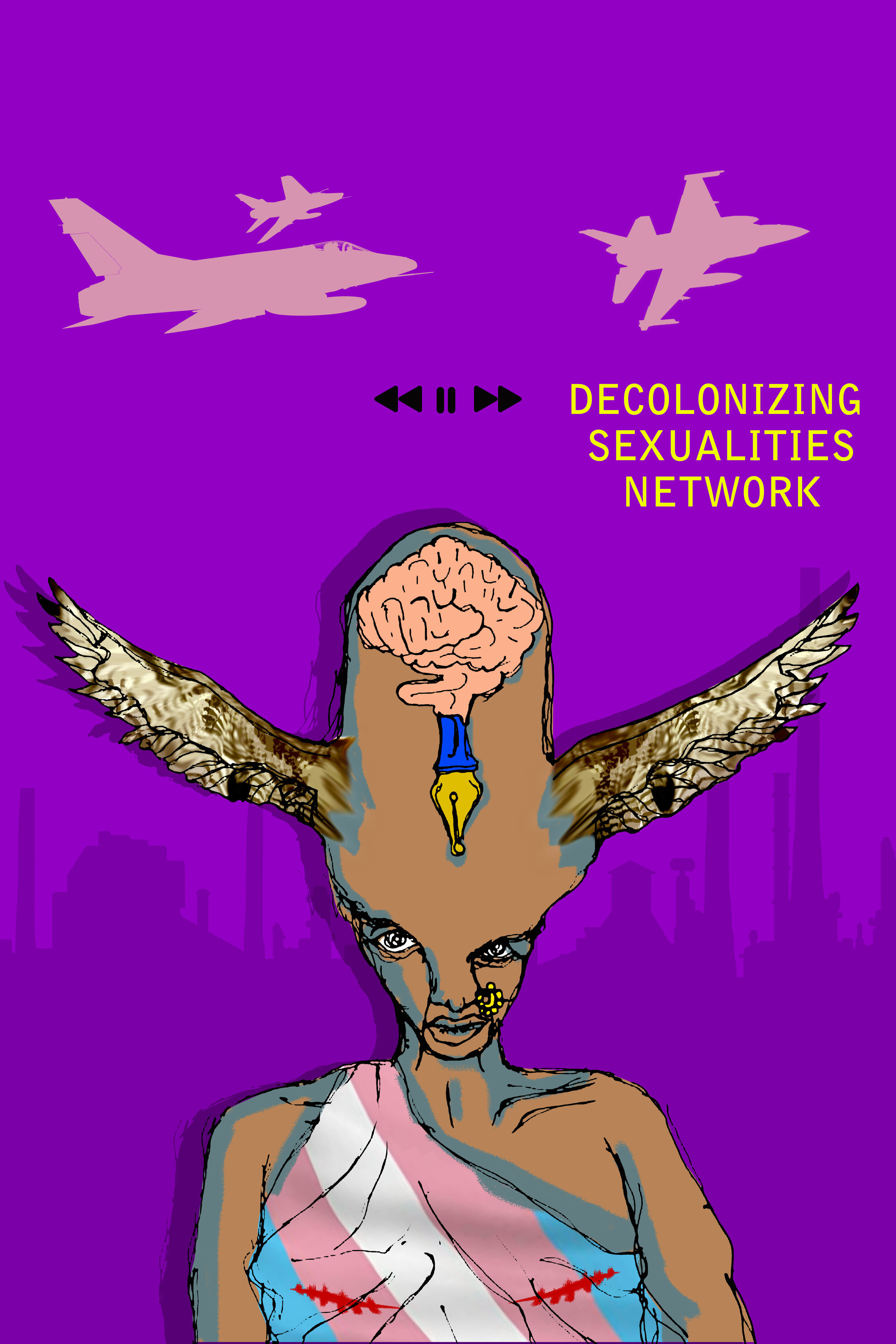Decolonial Café 2021
The DSN celebrated its tenth anniversary with transnational discussions on decolonizing sexualities
Two Weekends. Four Days. Seven Panels. Online.
March 20th-21st & March 27th-28th 2021
ORGANIZERS:
Paola Bacchetta -Suhraiya Jivraj - Gee Imaan Semmalar - Silvia Posocco - Sandeep Bakshi
Event organised with the support of:
LARCA, Université Paris Cité (France) Department of Gender & Women’s Studies, University of California, Berkeley (US)
Birkbeck College, University of London (UK) Kent Law School, University of Kent (UK)
PROGRAM
Scroll down for panel descriptions and panelists’ bios
Opening: MARCH 20th, 2021 - The Organizers’ Remarks
Welcome and Introductions
DAY ONE
PANEL #1: QUEERS COMBATING SETTLER COLONIALISMS
March 20th, 2021 - 17.00 PARIS, France time.
Panelists:
Inés Ixierda, Walaa Alqaisiya, Haneen Maikey, Huma Dar
Chair: Paola Bacchetta
Inés Ixierda
Huma Dar
Group Discussion Panel #1
DAY TWO
PANEL #2: QTPOC ARTS, LITERATURES, MUSIC, FILM
March 21st, 2021 - 17.00 PARIS, France time.
Panelists: Aruni Kashyap, Alexandre Erre, Pratibha Parmar, Ochy Curiel
Chairs: Sandeep Bakshi and Silvia Posocco
Aruni Kashyap
Alexandre Erre
Pratibha Parmar
Ochy Curiel
Group Discussion Panel #2
PANEL #3: QTPOC ANALYTICS OF POWER: INTRA-QUEER
Chair: Paola Bacchetta
March 21st, 2021- 19.00 PARIS, France time.
Panelists: Marco Chivalan Carrillo, Akhil Kang, Dhiren Borisa, Elizabeth Lowe-Hunter, Milad
Marco Chivalan Carrillo
WATCH (Español/Spanish with closed captioning)
AUDIO (Español)
TRANSCRIPT (Español and English forthcoming)
Akhil Kang
Dhiren Borisa
Elizabeth Lowe-Hunter
Milad
Group Discussion Panel #3
DAY THREE
PANEL #4: QTPOC ANALYTICS OF POWER: DECOLONIAL CIRCULATIONS
March 27th, 2021 - 17.00 PARIS, France time.
Panel #4A (17.00 - 18.00 Paris, France time)
Chair: Gee Imaan Semmalar
Panelists: Nof Nasser-Edin (CTDC), Nour Abu-Assab (CTDC), Santa Khurai
Nof Nasser-Edin, Nour Abu-Assab
Santa Khurai
Group Discussion Panel #4A
Panel #4B (18.10 - 19.10 Paris, France time)
Chair: Silvia Posocco
Panelists: Joao Gabriel, Dawud Bumaye, PJ DiPietro
Joao Gabriel
Dawud Bumaye
PJ DiPietro
Group Discussion Panel #4B
PANEL #5: QTPOC SURVIVAL, HEALING AND THRIVAL
March 27th, 2021 - 19.20 PARIS, France time.
Chair: Sandeep Bakshi
Panelists: Raju Rage, Tala Khanmalek, Living Smile Vidya, Norma Elia Cantú
WATCH (English with closed captioning)
AUDIO (English)
TRANSCRIPT (forthcoming)
DAY FOUR
PANEL #6: QUEER ISLAM - SCHOLARSHIP & COMMUNITY ACTIVISM
March 28th, 2021 - 16.30 PARIS, France time.
Chair: Suhraiya Jivraj
Panelists: Latifa Akay, Tamsila Tauqir, Mikail Khan, Rima Athar, Daayiee Abdullah
WATCH (English with closed captioning)
AUDIO (English)
TRANSCRIPT (forthcoming)
TRANSCRIPT (forthcoming)
TRANSCRIPT (forthcoming)
TRANSCRIPT (forthcoming)
PANEL #7: QTPOC PRACTICES OF SOLIDARITY
March 28th, 2021 - 18.15 PARIS, France time.
Chair: Paola Bacchetta
Panelists: Sabreen Al Rassace/LOCS, Malissa, Serena Dankwa, Jin Haritaworn (video here, for Jin Haritaworn) https://www.youtube.com/watch?v=sMENRIQmqgU from 24’15” to 37’30”)
Sabreen Al Rassace (LOCS)
Serena Dankwa
Group Discussion Panel #7
Closing: March 28th, 2021 The Organizers’ Remarks
Artwork: Sabari
Email: iamsabareeshk@gmail.com
PANEL DESCRIPTIONS
PANEL #1: QUEERS COMBATING SETTLER COLONIALISMS
Queer Indigenous activists, artists, intellectuals and scholars have been at the forefront of struggles against settler colonialisms globally. This panel brings into conversation those working at the intersections of gender, sexuality and indigeneity to fight against settler colonialism and its manifold manifestations structurally, materially, epistemically, culturally, spiritually, in the long term and in everyday life. Some areas of discussion include:, surviving, resisting, ending and overcoming ongoing genocide; halting land theft and destruction; re-orienting relations to the land and environment; preventing epistemic, cultural and spiritual erasure, appropriaton and distortion; Native queer brilliance in survival, struggle and thrival; dreaming, re-organizing and living in the world otherwise; relations, solidarities and alliances. Substantively delinking from non-Native focused debates, the panel explores queer Indigenous perspectives. It is intended to open up spaces to further conversations across queer Native, Black, other people of color and other global southern queer, experiences.
PANEL #2: QTPOC ARTS, LITERATURES, MUSIC, FILM
Critical reemergence for QTPOC peoples foregrounds the making of knowledges, ways of knowing and expressing that often remain at the peripheries. However, such knowledge formations exemplify the need to make sense of our multiply-severed worlds. This sense-ing plays a crucial role in the arts, philosophy and mythmaking of QTPOC artistes. This panel brings into focus artists, writers, filmmakers, musicians, and other cultural practitioners working in disparate fields and geopolitical contexts.
PANEL #3: QTPOC ANALYTICS OF POWER: INTRA-QUEER
This panel focuses on QTPOC analytics and practices of power. It brings into conversation scholars, activists and artivists whose work addresses how relations of coloniality, capitalism, nationalism, class, racism, casteism, Islamophobia, sexism and multiple formations of queerphobia that saturate the planet and our immediate local contexts, can get (generally inadvertently) reproduced within and among queer and queer of color subjects ourselves. The panel engages with how power materializes in our political movements, groups, artivisms, and academic work, but also in our intimate relations, bodies, fantasies, representations, symbolic dimensions. It shows up in internalized logics of genocide, epistemicide, anti-Blackness, class insensitivities, and indifference towards immigration, undocumentation, refugee life and death, familial ostracisms, and more. There is a long history of reflection on internalized power (cf Franz Fanon, Albert Memmi, Asish Nandy, Silvia Rivera Cusicanqui, and others) but not yet upon its effects upon and among queer subjects and struggles. The panelists identify the conditions, states of being, situations and their effects on subalternized queer subjects in the global north and south, and dream avenues out of them, for the present and futurity.
PANEL #4: QTPOC ANALYTICS OF POWER: DECOLONIAL CIRCULATIONS
The colonisers celebrate
equality, liberty and fraternity
The whips still in their hands.
Daisy cutters bring human rights
Still life, barely alive
So queer! We are not yet human.
“Congratulations! You are dead”
The heads of states announce in press conferences
Bloodthirsty. Cannibalistic.
Palestine, Guadeloupe, Mexico.
They build walls over colonial wounds
Walls that crumble with one stone catapult.
Detention is no longer just a word school kids dread
Still life, barely alive.
Generations continue to be stolen
Fodder for the next binge-worthy netflix series.
A pandemic is not the scariest thing in our bloody history/present
Colonialism, slavery, caste - too many contenders.
How much shea butter
Sold by corporates as authentically “African”
Do we need to unknot our hearts and minds?
Ethically sourced, say the labels
Too late for your ethics and your bullshit labels.
Even three ply masks can’t cover the stench of blood.
Inter-disciplinary, oh so woke!
Don’t you know Octavia Butler wrote sci-fi and history all at once?
The one who butters her bread with a butcher’s knife.
Anti-colonial,
Anti-racist,
Anti-caste,
Anti-heteronormative,
Anti-homonormative
Anti-disciplinary,Anti-discipline.
The future lives on the tip of our tongues. The nib of our pens.
PANEL #5: QTPOC SURVIVAL, HEALING AND THRIVAL
Decolonial practices of survival, healing and thrival include challenging the coloniality of power in all its forms. They comprise the key tenets of oppressed peoples’ practices of survival, recentring and re-inventing their own modes of being in the world thereby exiting the colonial/colonised binary. This panel establishes a genealogy of survival strategies and traces ancestral practices and/or thrival kinship practices into contemporary creative queer modalities.
PANEL #6: QUEER ISLAM - SCHOLARSHIP & COMMUNITY ACTIVISM
This panel brings together scholars and activists firstly, working on doctrinal readings of Islamic sources on gender and sexuality diversity in Islamic law; as well as those providing community support for Muslim LGBTQI+ people and their families from inclusive spaces of worship and community to education on the range of interpretations within Islamic jurisprudence.
PANEL #7: QTPOC PRACTICES OF SOLIDARITY
The everyday is the site and time of oppression and marginalisation. Yet, it is also where quotidian utopias are realised in ordinary practices of solidarity and collective survival. In the long term and most recently in the current crisis brought on by the Covid-19 pandemic, for example, individuals and communities have assembled and mobilised, often drawing on histories of self-organising in the face of structural and spectacular violence, as well as on concurrent contemporary experiences of subaltern life always-already ‘in the emergency’. This panel engages with QTPOC visionary experiments of shared life, interconnectedness and solidarity.
Artwork: Sabari
iamsabareesh@gmail.com
PANELISTS’ BIOS
Akhil Kang is a Ph.D. Candidate in Socio-cultural Anthropology at Cornell University. He is academically and politically interested in shifting the anthropological gaze away from lower caste individuals and understanding victimhood and woundedness of upper caste individuals/savarnas because of affirmative action/reservation. He is an interdisciplinary scholar working at the intersection of several fields including feminist and queer studies; body politics; affect and media studies, and postcoloniality. Prior to enrolling at Cornell, Akhil received his B.A. LLB (Hons.) from NALSAR University of Law, Hyderabad, and is a registered Advocate with Bar Council of Delhi. Born and raised in Jalandhar (Punjab, India), he has been involved in queer and anti-caste activism and human rights lawyering.
Alexandre Erre lives and works between France and New-Caledonia. He was born in 1990 in Nouméa where he lived for about 17 years. He studied at the École Supérieure d’Art et Design de Grenoble and then at École Nationale Supérieure d’Arts de Paris-Cergy. Through the use of installations, sculptures, videos, photographs, interventions in public spaces, performances and engraving, he dissects the codes and norms to question and create memories, tales and fictions. Alexandre Erre’s practice revolves around his native island, New-Caledonia, and broadly speaking around the processes of exoticization, racializing, gendering, domination or cultural hierarchy. His questioning, at the crossroads of gender, sexuality and community, leans on his personal background and summons his insularity and his diasporic status.
Aruni Kashyap is a bilingual writer and translator. He is the author of His Father’s Disease (Flipped Eye Books) and the novel The House With a Thousand Stories (Penguin). He has also translated from Assamese and introduced celebrated Indian writer Indira Goswami's last work of fiction, The Bronze Sword of Thengphakhri Tehsildar (Zubaan Books, 2013). He won the Charles Wallace India Trust Scholarship for Creative Writing to the University of Edinburgh, and his poetry collection, There is No Good Time for Bad News (Future Cycle Press) was a finalist for the 2018 Marsh Hawk Press Poetry Prize and 2018 Four Way Books Levis Award in Poetry. His short stories, poems, and essays have appeared in Catapult, Bitch Media, The Boston Review, Electric Literature, The Oxford Anthology of Writings from Northeast, The Kenyon Review, The New York Times, The Guardian UK, and others. He is an Assistant Professor of Creative Writing at the University of Georgia, Athens. He also writes in Assamese, and his first Assamese novel is Noikhon Etia Duroit (Panchajanya Books, 2019).
Dawud Bumaye is an Afro-feminist activist. Her research focuses on articulating social relationships in terms of race, class, gender, and sexualities. Comitted to the struggle for Black and diaspora lives, as well as the anti-racist, decolonial, feminist, and queer of color fight, she is a member of the Coordination Action Autonome Noire (CAAN) in France. She also has been a publisher in the recent past.
Daayiee Abdullah. Imam Daayiee Abdullah is founder and Executive Director of MECCA Institute (Muslim Education Center for Creative Academics), a Muslim think tank and online school. Based in Washington, D.C., he is a scholar in Shari’ah Sciences and Quranic Interpretation. A former public interest lawyer, he lectures nationally and internationally on progressive Muslim concepts, intra-faith and interfaith networking, and the development of inclusive and progressive revisions of Islamic theological thought and Islamic law. He has long been involved in actively promoting understanding and awareness of issues of racial, gender and sexual equality within and beyond Muslim communities. As Imam and Education Director at Light of Reform Mosque, Imam Daayiee provides pastoral counseling for Muslim youth and adults, their families and friends.
Dr Dhiren Borisa is a Dalit queer activist, poet and a urban sexual geographer and are currently employed at Jindal global law school as an Assistant Professor. They are also an honorary visiting fellow at University of Leicester and interested in sexual mappings and makings of cities from an intersectional and decolonial lens both among queer spaces in India and in diasporic queer worldings.
Elizabeth Löwe Hunter is a daughter of two harbors – Savannah, Georgia and Copenhagen, Denmark. She centers expressions of subjectivity, belonging, and material realities among racially minoritized people in Western Europe, specifically Denmark. She specializes in articulations of racism in a ‘raceless’ context through transnational feminist theories, decolonial, and African diasporic thought. She examines relations between race, nation, and gender to raise questions around Western constructions of humanness. She is a Ph.D. student in the Department of African American Studies and African Diaspora Studies at University of California Berkeley, with a Designated Emphasis in Women, Gender and Sexuality Studies.
Hakima Abbas is an African activist who has been active in social movements for two decades. Her work has focused on strengthening and supporting movements for transformation in Africa and the Diaspora.
Haneen Maikey is a feminist queer community organizer, co-founder and former director of the national Palestinian LGBTQ grassroots organization “alQaws for Sexual and Gender Diversity in Palestinian Society”.
Huma Dar’s paternal family was ethnically-cleansed from Srinagar, Kashmir in 1948 for demanding plebiscites under the UN Resolutions. Her maternal family, exiled from Kashmir after accepting Islam during the Dogra regime, fought for Independence from the British. With an interdisciplinary background in South Asian Studies with emphasis in Gender, Women & Sexuality Studies and Film Studies, Dar has lectured in the departments of Gender & Women’s Studies, Ethnic Studies, and South Asian Studies at University of California at Berkeley; in the Department of Critical Studies and Philosophy at California College of the Arts; Race & Resistance Studies Program at San Francisco State University, amongst others.
Dar’s work is focused on the intersections and co-formations of race, religion, class, caste, gender, sexuality, and national politics of South Asia and South Asian diasporas, centered on intellectual and political activism for social justice, especially in Indian Occupied Kashmir. Her published work includes “Cinematic Strategies for a Porno-tropic Kashmir and Some Counter-Archives” in the Journal of Contemporary Theory; “Can A Muslim Be An Indian and Not A Traitor or A Terrorist?” in Shared Idioms, Sacred Symbols, and Articulation of Identities in South Asia; and an essay on caste and Kashmir in Hatred in the Belly: Politics behind Appropriation of Dr. Ambedkar's Writings, and pieces in several edited volumes focused on South Asia. Dar is a feature writer at Pulse Media, a collaborative political, activist, and academic weblog, and is a published poet. She is a founding member of the UC Berkeley Center for Race & Gender and Townsend Center working group on “Muslim Identities & Cultures,” and organized the feminist conference, Boundaries in Question on the theme of “Women and War,” both at UC Berkeley.
Inés Ixierda (Gardilcic) is a Mestiza Interdisciplinary artist, media maker, anti-imperialist cultural worker and organizer living on occupied Ohlone Land in the San Francisco Bay Area. She works with the urban Indigenous women led, Sogorea Te’ Land Trust leading decolonizing projects, documentation, creative work and political education. Additionally, Inés is a part of an emergent network of grassroots projects queering relationships to land while building resources for unsettling and rematriation.
Jin Haritaworn is Associate Professor of Gender, Race and Environment at York University. Their publications include two books and numerous articles (in journals such as GLQ, Sexualities, Society&Space and Topia), and several edited and co-edited collections (including Queer Necropolitics, with Adi Kuntsman and Silvia Posocco, and Queering Urban Justice, with Ghaida Moussa and Syrus Marcus Ware). Their book, Queer Lovers and Hateful Others: Regenerating Violent Times and Places (Pluto 2015), on queer Berlin, addresses both academic and non-academic readerships interested in queer of colour spaces and communities. Jin grew up on queer of colour kitchen tables in London and Berlin and now lives on the territories of the Mississaugas of the New Credit First Nation, the Huron-Wendat First Nation, the Haudenosaunee Confederacy, and the Metis Nation of Ontario. They locate their research in the tradition of an activist scholarship that attempts to be in the service of social justice communities.
Joao Gabriel is a panafricanist activist from Guadeloupe in the Caribbean, PhD student in history, works on the place of prison in the debates about the abolition of slavery in the French July Monarchy, writes a blog called “le blog de Joao” on issues related to African diasporas, slavery, the Caribbean and gender.
Latifa Akay is a trustee at the Inclusive Mosque Initiative and Director of Education at the London-based charity Maslaha. She has done a range of work at a grassroots and policy level around the intersection of gender, sexuality, race/ism and Islam. Latifa has an academic background in law and studied Islamic law and Islamic feminist scholarship in an LLM in Human Rights at SOAS. Latifa is a regular media commentator and formerly worked as a journalist in Istanbul. Her poems and prose have been featured in a range of places including The Good Journal, Poetry Birmingham Literary Journal, VS Poetry Podcast and the 87 Press.
Lesbiennes of Color (LOCs) is an autonomous group based in France. Created in 2009, LOCs brings together lesbian feminists from Africa, the Americas, the Carribean, the Middle East and Asia. LOCs is a space for intellectual exchange, and political and activist work in which lesbians of color bring their individual and collective knowledges together.
Living Smile Vidya aka Smiley, an Actress, Hospital Clown, Essay writer, Poet, Sketch artiste and Founder-Director of “Panmai Theatre”. Smiley is one of the pioneers of Trans activism in India. She is the first Transwoman who legally fight to change her name and gender from Tamil Nadu state government. She is the first Transwoman who worked in a mainstream, private bank recognized as a transwoman in 2006. And continuing her struggle to get job and work rights for Transgenders with reservation.
Smiley received the British Council, Charles Wallace Award 2013 for her excellence in Theatre. She is involved with theatre since, 2004. She has so far staged more than 100 shows of 25 plays with 12 eminent Theatre Directors including Clown performances. Physical, clown, Commedia Del’ Arte/ Mask form of theatre is her passion and expertise in acting.
She is the author of I am Vidya which is India’s first transgender autobiography. I am Vidya is originally written in Tamil and translated into English, Malayalam, Kannada, Marathi and Assamese. Movie based on her autobiography Naanu avanu alla avalu in Kannada won two national awards of the year 2014 including best actor and best makeup artiste. And Karnataka State Film Awards.
Kannada translation of her book Naanu avanu alla avalu (I am not HIM, I’m HER) got Indian Government’s Sakithya Academy Award in the category of best Kannada translation award for the year 2012. She is also the curator of a story collection Mella Vilagum Panithirai. Her essays and poems are published in magazines in many commercial magazines, literary magazines and online magazines. Her poem collection Maranam mattuma maranam means is death alone is death?! Is released recently. Her collection of essays is in the pipeline.
Smiley also had good experience in the Tamil cinema industry. She appeared in a few short films like Pombala pombalaya Irukkanum, 500 & 5 and documentaries like Aghrinaigal, Butterfly, Naked wheels. Is it too much to ask has been based on her life. She also worked in the capacity of Associate Director to Mr.Mysskin in his Tamil film Nandhalala and worked in the capacity of Associate Director to Mr.Gopinath in his Malayalam film Viratham.
“Malissa” describes herself as feminist, lesbian, franco-algerian, a precarious and angry academic, who is part of the whole group of scholars that the Macron government has dismissed as “intersectionaliste” and Islamo-gauchiste (Islamo-leftist) . Please join me in welcoming Melissa. Her presentation is in French so we will see a film clip with English translation.
Marco Chivalán Carrillo, K’iche’ Researcher in Social Imaginaries Studies, Asociación para el Avance de las Ciencias Sociales en Guatemala, AVANCSO, works on assemblages of sexual and racial violence, whiteness and colonial order studies. Chivalán Carrillo is co-author of Sexo y raza. Analíticas de la blancura, el deseo y la sexualidad en Guatemala (AVANCSO, 2015) Producción corporal. Interfiriendo engranajes de violencia en Guatemala (AVANCSO, 2019) and many other essays, including ‘Cuerpos en experimentación: Sífilis y fármacopoder en la Ciudad de Guatemala (1946-1948)’ (2020). Current projects include co-coordinating the Cuerpos, territorios y tecnociencia (UNACH-AVANCSO, 2021) research project, and another research about necropolitics of the body in Guatemala.
Mikail Khan is a transmasculine & non-binary Muslim media maker, writer & curator from Bangladesh who invests their care and energy into advocating for trans and gender-expansive youth and communities of color. They work within the field of philanthropic communications and development and their creative and activism work is driven by interrogations on gender, queerness, geography and religion. Mikail is also the creator of Moving Genders NYC, a qtpoc film festival and the forthcoming Buraq Anthology, an anthology by and for trans and non-binary Muslims (https://buraqanthology.wixsite.com/buraqanthology).
Milad/Malek Cheikh is the editor in chief of AssiégéEs, a francophone autonomous journal engaged in the production of knowledge outside the academy, formed by women of color and QTPOC. They graduated with a Master in Gender Studies: History, Society and Politics from the University of Paris VIII and are now finishing a Master's Degree in Culture and Communication. Their research addresses migrations, asylum, homonationalism and media representations.
Dr Nof Nasser-Eddin is a feminist sociologist with a PhD (2011) from the University of Warwick. Nof has over fifteen years of experience, which extends beyond the academia, as she has also worked with different international, national and local non-governmental organisations, across Arabic-speaking countries. Nof’s work and publications focus on issues related to social justice, including environmental feminism, intersectional feminism, sexuality, class, refugeehood, displacement, forced migration, decolonial and queer methods, class, masculinities, sexual practices and gender performances, and agency. Nof’s work also investigates the intersections of cultural, economic and political class with gender.
Norma Elia Cantú currently serves as the President of the American Folklore Society and Murchison Professor of the Humanities at Trinity University in San Antonio, Texas, where she teaches Latinx and Chicanx Studies. A daughter of the borderlands, she focuses on the US-Mexico border for her research and scholarly work as well as her poetry, fiction and personal essays. She has coedited over 10 books on a number of subjects including art (Moctezuma’s Table: Rolando Briseños Chicano Tablescapes and Ofrenda: Liliana Wilson’s Art of Dissidence and Dreams), in STEM (Paths to Discovery: Autobiographies of Chicanas with Careers in Mathematics, Science, and Engineering), Texas Studies (Entre Guadalupe y Malinche: Tejanas in Literature and Art), and in Folklore (Chicana Traditions: Continuity and Change and Dancing Across Borders: Danzas y Bailes Mexicanos). She has received awards for her work from the Modern Languages Association, the American Folklore Society, the Tejas Foco of the National Association for Chicana and Chicano Studies, and The University of California, Santa Barbara as well as numerous community organizations. She co-founded CantoMundo and is a member of the Macondo Writers Workshop; she currently serves on the board of the latter and of the Esperanza Peace and Justice Center. Her research and creative writing have earned her an international reputation, and she is a frequent keynote and plenary invited speaker. She has read her work in Europe, Asia, and throughout the US and Mexico. The award-winning Canícula: Snapshots of a Girlhood en la Frontera, is taught in numerous universities in the US and in Europe. She translated Gloria Anzaldóa’s Borderlands/la Frontera into Spanish. She most recently published the co-edited anthologies meXicana Fashions: Politics, Self-Adornment, and Identity Construction and Teaching Gloria E. Anzaldúa: Pedagogies and Practices for our Classrooms and Communities, Cabañuelas, a novel, and Meditacion Fronteriza: Poems of Love, Life, and Labor.
Dr Nour Abu-Assab is a feminist sociologist with a PhD (2012) from the University of Warwick. Nour is multi-disciplinary practitioner and academic with over fifteen years of experience working on issues related to social justice in the Global South. Her interests include gender, reproductive and sexual justice, diversity and inclusion, feminist governance, safeguarding and protection, education, movement building, environmental and intersectional feminist justice. Nour’s publications address issues around identities, sexualities, migration, post-colonialism, queer and decolonial methods and has a forthcoming book to be published by I.B. Tauris under the title of Ethnic Minorities and Nationalism in the Middle East: The Circassians of Jordan and the Kurds of Syria.
Ochy Curiel was born in the Dominican Republic and currently lives in Colombia. Curiel holds Master’s and PhD degrees in Social Anthropology from the National University of Colombia, specialisation in Tertiary Education, Social Sciences, Autonomous University of Santo Domingo, and an undergraduate degree in Social Work, Universidad Católica Madre y Maestra, Dominican Republic. Curiel is a member of the Faculty with research and teaching responsibilities, National University and Universidad Javeriana en Bogotá, Colombia. Curiel is a member of the Grupo Latinoamericano de Estudios, Formación y Acción Feminista (GLEFAS), and the Tremenda Revoltosa, batucada feminista, as well as a singer-songwriter. An activist in the lésbico-feminista, antirracista movements, feminismo autónomo y and feminismo decolonial, Curiel’s publications include the book, La nación heterosexual, Análisis del discurso jurídico y el régimen heterosexual desde la antropología de la dominación (2013). Curiel has co-edited numerous volumes and is also the author of many articles which develop analyses of racism, (hetero)sexism, classism and all systems of domination from a decolonial perspective.
PJ DiPietro, PhD. PJ works at the intersection of decolonial feminisms, women of color thinking, Latinx studies, and trans* studies. They are assistant professor and graduate studies director in the department of women’s and gender studies at Syracuse University, New York. With a transdisciplinary approach, they engage anthropology, human geography, and philosophy. They are one of the co-editors of Speaking Face to Face: The Visionary Philosophy of María Lugones (SUNY 2019) and their single-author manuscript will be published under the title Sideways Selves, The Decolonizing Politics of Trans* Matter Across the Américas. They collaborate with various organizations committed to social justice, including the Democratizing Knowledge Collective, the Association for Jotería Arts, Activism, and Scholarship (AJAAS), the decolonial philosophy collaborative REC-Latinoamérica, and the travesti collectives Damas de Hierro and Futuro TransGenérico.
Pratibha Parmar was born in Nairobi, Kenya. Her family migrated to London, England. She currently spends time between London & California where is an Associate Professor in the Film Program at the California College of the Arts. A graduate of the Birmingham Centre for Contemporary Cultural Studies, Parmar co-founded the first Black British women's publishing house (Black Women Talk) as well as being a member of Sheba Feminist publisher. Parmar published a number of seminal texts on queer of colour art, film and theory practices. Over the decades, Parmar has brought marginalised stories to the mainstream through feature films such as Nina’s Heavenly Delights (2006) and her countless award-winning documentaries, Alice Walker Beauty in Truth (2013) & A Place of Rage (1991) Early works like Emergence (1986) and Flesh and Paper (1990) generated vital visibility for an emerging generation of queer of colour activists and contemporary poets such as Suniti Namjoshi and Audre Lorde, while documentaries like Reframing Aids (1989) and Khush (1992) opened key spaces of discussion around queer practices and sexualities in a diaspora context. As an artist, Parmar has brought a queer optic lens to multiple emerging discourses of racialised & gendered otherness, creating much-needed links and landscapes of resistance. Her films have received international critical acclaim and her dedication in bringing complex subjects into mainstream media has helped change the contours of popular discourse on race, feminism, sexuality and creativity. Website: www.pratibhaparmar.com.
Raju Rage is proactive about using art, education and activism to forge creative survival. Based in London and working beyond, they explore the spaces and relationships between dis/connected bodies, theory and practice, text and the body and aesthetics and the political substance. Their current interests are around sustainability, economies, care, and resistance. They are a member of Collective Creativity arts collective and are a creative educator and with an interest in radical pedagogy.
Raju has a theirstory in activism, self and collective organised queer/ transgender/ people of colour movements and creative projects in London and beyond from which their politics and works draw on and from.
Rima Athar is a change-maker, activist and facilitator, with roots in Pakistan and connections to queer & feminist organizing globally. For 12+ years she has led diverse human rights programs, including on sexual and reproductive justice, internet technology & corporate accountability, challenging fundamentalisms & fascisms, and ending violence against women and girls. Rima currently coordinates the Coalition for Sexual and Bodily Rights in Muslim Societies (CSBR), working holistically with women, trans & non-binary activists to advance healing & well-being, bridge divides on faith & sexuality, and strengthen grassroots movements across Asia and North Africa.
Sabari. Disabled individual. Freelance artist from Kerala, India. Curious on disability representation in popular media. Email: iamsabareeshk@gmail.com.
Santa Khurai is a Manipuri indigenous Nupi Maanbi transgender woman.She is a writer, activist and artist. Her work is mainly focus on the inclusion of transgender in the socio economic and political realms. Her work is focussed on the north east states. Apart from the immediate needs of trans people like state welfare, facilitating legal name and gender change, training activities, advocating with various states in the region for the recognition of transgender rights, she is also involved in international and national level advocacy for the recognition and representation of North East Indian indigenous,queer socio cultural rights. The translated book "Yellow Sparrow" is her forthcoming book and is a collection of her memoirs. Her poetry was also published recently in The World That Belongs To Us: An Anthology of Queer Poetry from South Asia, Harper Collins, 2020.
Serena Owusua Dankwa is currently teaching decolonial, feminist theories at the Interdisciplinary Center for Gender Studies, University of Bern and researching “critical diversity literacy” at the University of Applied Sciences and Arts Northwestern Switzerland. She previously held the Sarah Pettit Fellowship at Yale University and worked as a cultural journalist with Swiss Radio and Television Today, she advocates for the rights and dignity of migrant women, sex workers and people of color in Switzerland. She is a co-founder of the queer, afro-feminist network Bla*Sh and a co-editor of the book Racial Profiling: Struktureller Rassismus und antirassistischer Widerstand (2019) and author of Knowing Women: Same-Sex Intimacy, Gender and Identity in Postcolonial Ghana.
Tala Khanmalek is an Assistant Professor in the Department of Women and Gender Studies at CSU Fullerton. Her research bridges critical race and ethnic studies; women of color feminism; oral history; public health; and law, literature, and embodiment. She is currently writing a book manuscript that engages public health archives with feminist of color epistemologies and continuing a multi-year oral history project on the work of healing justice practitioners. For a list of her publications, please visit: https://fullerton.academia.edu/TalaKhanmalek.
Khanmalek has been the recipient of many awards, grants, and fellowships including, most recently, a (partial) Laura Bassi Scholarship from Editing Press; a Milton Gordon New Faculty Research and Creative Activities Stipend from CSUF; a CMAS-Benson Latin American Collection Summer Research Fellowship from UT Austin; and a Building Bridges Award from Princeton University’s LGBT Center. She regularly participates in academic conferences and is a member of the American Studies Association’s Committee on Critical Ethnic Studies.
Khanmalek has taught a wide range of entry and upper-level college courses as well as interdisciplinary courses of her own design (e.g., “Science Fiction and Fact” at Princeton University). At CSUF she teaches “Introduction to Women’s Studies” and “Advanced Readings in Feminist Theory” on Gloria Anzaldúa. Additionally, she is a faculty advisor to the SWANA (South West Asia and North Africa) student organization, a faculty mentor in the Mellon Mays Undergraduate Fellowship Program, and a co-coordinator of the Off the Syllabus book club.
Khanmalek earned her PhD in Ethnic Studies at UC Berkeley with a Designated Emphasis in Women, Gender and Sexuality and her BA in Ethnic Studies and French, also at UC Berkeley. She was formerly a Postdoctoral Research Associate in the American Studies and Gender and Sexuality Studies Programs at Princeton University; a Visiting Scholar at UC Santa Cruz’s Science and Justice Research Center; and a lecturer in the Liberal Studies Department at CSU Los Angeles.
Last but not least, Khanmalek is a contributing writer at Ideas on Fire; a creative writer and Voices of Our Nations Arts Foundation alum; the founding director of Sailing for Social Justice, a sponsored project of the Detroit-based Allied Media Projects; and a long-time political activist involved in community-based organizing for social justice.
Tamsila Tauqir is a co-founding member of Inclusive Mosque Initiative and Safra Project, as well as being a former Co-Chair of the charity Interfaith Alliance UK. Tamsila's professional roles are based in engineering as well as in policy and research. The latter focuses on cross-sector working between the voluntary & community sector and the statutory sector. Tamsila has also been a trade union activist for many years in her local branch.
Tupili Lea Espinosa Arellano. Pronouns They/them. Curx=Two spirit. Two Spirit indigenous Elder from the southwest and Oakland, CA. Based in Oakland one powerful vortex of radical healing and creating social justice! Educator, medicine carrier, social justice fire in the streets since 1968. Ceremonialist, painter, elder mentor, writer and Queer warrior. Two Spirit Urban Medicines, decolonizing one mind at a time. Email for more info and to see paintings. Love! leaestrella@sbcglobal.net.
Wanelisa Xaba is a decolonial writer from South Africa. She has written and contributed vastly in the Black feminist movement, decolonization and the LGBTIQ movements in the country. She is currently figuring how to take ancestral knowledge and African spiritual wisdom seriously in her PhD on Black subjectivities in colonial universities.
Walaa Alqaisiya is a teaching fellow in gender, peace and security. She holds a doctoral degree in Human Geography from Durham University that examines the meanings of queer(y)ing spaces within the current Palestinian context and their relevance in relation to de-colonial geographies and imaginaries. Her research commitment, grounded in grassroots concerns and aesthetic productions in the multi-layered and conflicted context of Occupied Palestine and the MENA region more broadly, interrogates the value of decolonial, feminist and queer methodologies to advancing the intellectual sovereignty of local knowledge(s) from the global south. Conceptually, her work weaves together queer studies, decolonial approaches and indigenous studies perspectives, and asks how the question of decolonisation and queerness may intersect and mutually inform each other against a background marked by settler and/or post-colonial conditions.
Translators:
Lily Hook
lily hook (she/they) is a canadian-lebanese genderqueer astrologer, visual artist and independent researcher. she studied film, contemporary art and gender studies in france and holds a master’s degree in contemporary art and new media. through queering astrology and using their political understanding of systemic oppressions and attempts at liberation, their astrological practice serves to create understanding of the self, kindness, and agency. her art questionsthe imprints of fiction on bodies (present or absent), archives and relics, gender and sexual fluidity, autofiction, family mythologies, and diasporic displacement. always in conversation, her art and researches are fuelled with post-colonial theories, queer politics, and spirituality.
Ulises Moreno Tabarez, PhD
I am a postdoctoral researcher based in the Costa Chica region of Guerrero, my home state in Mexico. My current project is an ethnographic research examining environmental racism by way of state development projects. I understand this region, which expands into the state of Oaxaca, as an Afro-Indigenous geography where Black and Indigenous bios and mythos, biological and cultural meshworks have been forged enduring and resisting (post)colonial subjugation. Currently, I am preparing for a seminar series, funded by the Urban Studies Foundation, which includes a participatory video element where participants document their experiences as people living in small and remote cities. I also serve as one of the Editors for the journal, City: Analysis of Urban Change, Theory, Action.
Relevant publications:
(2020) "Towards Afro-Indigenous ecopolitics: addressing ecological devastation in Costa Chica." CITY Vol. 24(1-2).
(2020) "Rural pandemic: the afterlives of slavery and colonialism in Costa Chica, Mexico" Dialogues in Human Geography Vol. 10(2).
(2020) "Black feminist poetics: empowering rural women and girls in Costa Chica." Discover Society. DS: 83.
Organizers:
Gee Imaan Semmalar is from Kerala and currently pursuing a PhD in law at the Kent Law School. He has experience in theatre, films, creative writing and organizing for justice and social change in solidarity with and as part of trans and anti caste movements. He has learnt much from his sisters, mothers and siblings in struggle and is forever in awe of their courage and brilliance.
Paola Bacchetta. See About.
Sandeep Bakshi. See About.
Silvia Posocco. See About.
Suhraiya Jivraj. See About.





2019 Decolonial Cafe, Paris
Decolonial cafés are held in various cities of the global north with the aim of enhancing and encouraging exchange between various social actors and activists.
The DSN held its first decolonial café in Paris (France ) on 19th May 2019. Titled, “Peripheral Perspectives at the Centre”, the café gathered LGBTQ POCs from France, Britain and the US for an afternoon of political mobilisation, performance, poetry, and film screenings. The queer French-Moroccan writer Abdellah Taïa presented his recent novel La vie lente (2019) and responded to questions from the audience.
